- Apr 7, 2021

Working to Learn: New Research on Connecting Education and Career
New White Paper from the Project on Workforce Highlights Critical Need to Better Connect Education and Career

By: Joseph B. Fuller, Rachel Lipson, Jorge Encinas, Tessa Forshaw, Alexis Gable, & J.B. Schramm
Download the report:
In the wake of covid-19 and growing inequality, america needs more pathways that bridge education and career. new research from the project on workforce at harvard draws on data from new profit's postsecondary initiative for equity to identify opportunities for the education-to-employment field and chart the course for connections to good jobs., press release.
APRIL 7, 2021 -- A new white paper released today by Harvard’s interdisciplinary Project on Workforce - Working to Learn: Despite a growing set of innovators, America struggles to connect education and career - highlights stark challenges and transformative opportunities for the growing field of organizations seeking to connect postsecondary education with employment.
The development of job pathways that integrate work and learning are critical to an equitable recovery and a future where social and economic opportunity are available to all. Workers from underrepresented communities, particularly communities of color, have been most affected by the economic fallout of the COVID-19 pandemic and traditionally have faced the largest systemic barriers to social and economic opportunity in America. These communities are wellsprings of insight and talent where people are poised to take advantage of stronger pathways to learning and earning amidst accelerating changes in our workforce and economy.
“Our research showed that many organizations purporting to connect both education and career are still struggling to do so,” said Joseph Fuller , Professor of Management Practice at the Harvard Business School and co-author of the report. “While standout organizations exist in the field, too few programs are linking soft and hard skills, prioritizing evidence, working with employers, or providing wraparound supports.”
The research utilized a unique dataset of 316 applications to an open grant competition for programs seeking to connect postsecondary education and employment. Analyzing these organizations, the report’s authors found:
Huge potential to engage employers more deeply: Programs that worked with employers were growing faster than peers, but only about one-third (35 percent) of organizations mentioned that they were working directly with employers. Only about one-quarter mentioned providing learning opportunities in workplace environments.
Opportunities to build bridges between education and employment: Only 16 percent of organizations prioritize relationships with both educational institutions and employers. Success measurement is similarly siloed between education and employment metrics; for organizations that focused on college-related outcomes, only 33 percent also prioritized employment outcomes.
A growing need to develop transferable skills in the future of work : One-third of organizations in the dataset focused on job-specific training, but just nine percent of organizations prioritized foundational soft skills alongside job-specific skills.
A critical opportunity for more investment in wraparound supports: Only 13 percent of organizations cited directly providing wraparound supports like subsidies for transportation, housing, or childcare.
A growing, but still nascent, evidence base: The most common success metric tracked by applicant organizations (59 percent) was whether participants completed the program. About one-quarter of organizations indicated that they measured employment rates and a similar share tracked college attendance. Causal evidence is more rare; nine percent of applicants cited an existing study, quasi-study, or external evaluation of the program model in their application.
Under-leveraging of technology in some areas : Before the onset of the COVID-19 pandemic, the field was heavily skewed towards in-person models. Only six percent of programs were fully online; 11 percent had hybrid models.
“To date, the field is fragmented and often siloed between college and employment missions,” said report co-author Rachel Lipson , Project Director of the Project on Workforce at the Harvard Kennedy School. “But there is vast untapped potential to scale innovations both within and across organizations.”
Postsecondary Innovation for Equity initiative
The data for this research comes from the Postsecondary Innovation for Equity (PIE) initiative . The PIE initiative was developed by New Profit, a nonprofit venture philanthropy that supports social entrepreneurs who advance equity and opportunity in the United States. New Profit asked organizations that considered themselves innovators in the education-to-employment sector to apply to receive an unrestricted $100,000 grant and participate in a peer learning community. Of the 316 applications received, New Profit selected 20 organizations for the first round of grants and support. The full data set from the 316 applicants provided rich material for this analysis of the current state of the education-and-employment field.
Advancing the education-and-employment field
The PIE initiative supports innovators working at the intersection of education and employment to develop new approaches to connect young adults from low-income and underrepresented communities with the postsecondary credentials and work experience needed to access upwardly mobile careers. For example, CodePath.org is leveraging technology to help thousands of college students from underrepresented backgrounds gain the skills and connections they need to launch tech careers; Generation USA is forging close partnerships with employers to rapidly train and place adult learners into upwardly mobile jobs; and the Brooklyn STEAM Center is closing the gap between school and work by enabling New York City public high school students to learn through work experience at dozens of companies located at the former Brooklyn Navy Yard site.
“Scaling and disseminating successful models will be key to systemic change,” notes New Profit Associate Partner Glendean Hamilton , co-leader of the PIE initiative. “ Working to Learn points philanthropists and policymakers toward the kind of innovation needed to build a more equitable education-to-employment system in America.”
A virtual report briefing and discussion will be held on April 28, 2021 at 11:00am EDT and open to the public. Please register for the briefing at this link .
For media inquiries:
Nikhil Gehani, [email protected]
Rachel Lipson, [email protected]
About the Project on Workforce at Harvard
The Project on Workforce is an interdisciplinary, collaborative project between the Harvard Kennedy School's Malcolm Wiener Center for Social Policy, the Harvard Business School Managing the Future of Work Project, and the Harvard Graduate School of Education. The Project produces and catalyzes basic and applied research at the intersection of education and labor markets for leaders in business, education, and policy. The Project’s research aims to help shape a postsecondary system of the future that creates more and better pathways to economic mobility and forges smoother transitions between education and careers. Learn more at www.pw.hks.harvard.edu .
About New Profit
New Profit is a nonprofit venture philanthropy organization that backs breakthrough social entrepreneurs who are advancing equity and opportunity in America. New Profit’s strategy focuses on building a breakthrough portfolio of grantee-partners to take on entrenched systemic challenges in America, including by driving resources and support to Black, Indigenous, and Latino/a/x social entrepreneurs who have unique proximity to solutions, but face stark racial funding disparities in philanthropy; and investing in social entrepreneurs with new systems change models across a range of issues. Learn more at www.newprofit.org .
Funding for the Postsecondary Innovation for Equity (PIE) initiative at New Profit is provided by Lumina Foundation, Siegel Family Endowment, Walmart, Walton Family Foundation, and an anonymous investor.

- EDUCATION & SKILLS
Related Posts
The Workforce Almanac Report: A System-Level View of U.S. Workforce Training Providers
The Workforce Almanac Data Portal: Mapping the workforce development sector
Building the U.S. Construction Workforce

Explore Different Careers in Education
When thinking about a career in education, becoming a teacher is the most obvious choice. Even within teaching, the subject areas and age groups are so varied that a range of options exist.
And while jobs in education typically lead to teaching in some fashion, roles in consulting, administration and as school board members also are an option. In fact, the field of education is so varied that there are hundreds of different educational careers that can be accomplished with a degree in education -- jobs based online, in a classroom, in other countries or even in centers or homes.
Below are several areas that can be utilized for employment and educator careers when entering the world of education.
Sponsored School(s)
Considering a career in education.
Teaching is a wonderful and exciting profession for you if you are passionate about nurturing and helping the leaders and thinkers of tomorrow.
A career in education does not only entail teaching in the classroom but can also mean providing psychological counseling to students, being responsible for a school's management, or even helping provide access to resources such as libraries and counseling.
Read on to hear about the various options available to someone interested in a career in education.
Why Should I Pursue a Career in Education?
- Job Security: The Bureau of Labor Statistics predicts growth in almost all the educational careers. Jobs in teaching are readily available after graduation and teachers are in high demand across all disciplines. Put simply, there will always be a need for teachers and school administrators.
- Benefits: Teachers receive pensions and insurance coverage for themselves and their families. Additionally, teachers can avail of tenure and built-in salary increase plans as they gain experience. Teachers also often get paid holidays during winter and spring break, for example.
- Teaching What You Love: Teachers get to teach subjects that they are truly passionate about and inspire the next generation of leaders, thinkers and doers to change the world. Teachers get to discover and learn new facets of their subjects of interest every day by sharing it with young and curious minds.
Read more about a master's degree in education .
The Career Path for Teachers
With so many schools in need of teachers for all grade levels, it's easy to get started working in a classroom, whether through substitute teacher opportunities or degree programs that incorporate professional training at the outset.
While it's easy to hit the ground running as a teacher, it can be helpful to have a longer-term idea of your career path in mind before entering the field.
In fact, with such a wide range of career options ahead of you, it can be hard to decide where to focus your pursuits. But the good news is there's not just one best job in education - rather, it lies in the eye of the beholder, depending mainly on your personal interests, the work environment that most appeals to you, and where you'd like your engagement in the educational field to lie.
Below are a few of the different ways one might approach an education career. Take a look to see which one is right for you.
From Classroom Teacher to School Leader
Many teachers start their careers in the classroom with the long-term goal of growing their expertise to take on leadership positions within their schools. This can be an exciting and deeply rewarding opportunity for educators to run with what they've learned from their experiences and make a broader-scale impact on student life. These jobs can also offer improved pay, providing a valuable incentive that education professionals can work toward.
The path to becoming a school leader usually starts with classroom teaching, which provides the most insight possible into student needs within a given community. Classroom teachers of all grade levels typically start their careers as entry-level educators in public or private schools. As they gain experience and improve their skills, they can become eligible for leadership roles within their schools, such as department chairs or instructional coaches. These can give teachers a first taste of the larger organizational responsibilities of administrators and an acclimation to the macro-level perspective needed to make major academic decisions.
To become a full-fledged administrator, teachers may pursue advanced degrees, such as a master's or doctoral degree in education, to prepare for careers such as principal, superintendent, and other administrative roles.
Becoming a Specialized Teacher
Other teachers who do not choose to pursue the administrative path decide instead to continue careers in teaching, developing an area of specialty. These are often roles that focus on students with particular academic needs, such as English language learners (ELL students), special education students, and highly gifted students. These are some of the most important occupations in education: being able to support these students requires tremendous skill and training, and the payoff for students can be game-changing.
Some teachers pursue specialized training at the start of their careers, choosing certificate programs that emphasize this type of teaching work. Others begin as traditional classroom teachers but decide to concentrate their efforts on a particular arena, oftentimes after having taught students with academic needs and witnessed their educational struggles up close.
Alternative Careers for Teachers
While some educators wish to develop their careers purely within a school setting, there are other jobs for education majors and experienced teachers to put their knowledge and insight to use. These can be excellent opportunities for those looking for a change of pace from the busy day-to-day of working on campus with students.
There are many reasons why teachers decide to leave the classroom, but the good news is there are plenty of excellent job opportunities for teachers who don't want to teach.
Some teachers may choose to transition into teaching-related professions, such as curriculum development or educational consulting. These roles may involve developing educational materials and programs, conducting teacher training, or providing expert advice to schools and educational institutions. Drawing from observations from their time in the classroom, teachers can be amazingly resourceful in developing effective and engaging course materials. These are some of the most intellectually rigorous jobs in the field of education.
Other educators who wish to pursue work outside of the immediate school context go into advocacy work, using their expertise to advance important causes in education impacting teachers and students alike. This can involve receiving an advanced degree in educational policy or another legal field. Many have successfully started careers in educational policy through on-the-ground efforts such as volunteering, attending local government meetings, and more.
If you're looking for careers in education that aren't teaching, some of the following job titles may appeal to you:
- Curriculum developer or instructional designer
- Education consultant
- Education policy analyst
- Educational technology specialist
- Nonprofit education program manager
A Teacher's Perspective: Why I Left the Teaching Profession and Have Come Back
The following is written by a working teacher.
It's no secret that teaching is a job whose rewards are matched by its rigor. Unfortunately, many in the profession face burnout after years on the job, a problem exacerbated by the challenging conditions of many schools. Having taught high school for over ten years, I too eventually fell victim to burnout, pointing to the long hours and high pressure of the work, as well as the immense level of energy needed to run a classroom full of students.
Feeling fatigued, I decided to pursue a new career path, finding work as a writer for a large corporate retailer. (I hold a BA in English, which served me both as a Language Arts teacher and a professional copywriter.) While my work was nowhere near as demanding as the daily grind of teaching ninety students a day, it was also far less fulfilling. As I looked at other career options, it became clear to me that nothing else would allow me to make the meaningful contribution that is teaching, bringing my knowledge and wisdom to encourage the next generation of thinkers. After much deliberation - and more than a few much-needed naps - I decided to return to the teaching profession.
In order to return to teaching, I needed to approach the job with longevity in mind.
Now that I am teaching again, I am more mindful of my work/life balance, understanding that preventing burnout is an important part of my job. I have also been more mindful of channeling my professional efforts toward alternative careers in education, which can potentially offer themselves to me as viable career opportunities that are still close to the causes I care about if I ever need a change of pace yet again.
While much has been written about the difficulty of occupations in education, let my story be a reason to reconsider. There is simply no job that rivals the up-close impact you can make on the lives of young people, and if you're meant for the jobs, there's nothing else you'll find as rewarding.
Different Types of Teaching Jobs, Careers & Education Requirements
Below is listed the major career paths in education, ranging from preschool teaching to administration and library science. Detailed alongside are the primary responsibilities for each of these professions, corresponding education requirements and the median annual salary offered. Projected job growth within the next 10 years is also included below for each of these professions.
Learn more about a teaching degree online .
Jump to Careers in Education
Art teacher, biology teacher, college professor, elementary school teacher, english teacher, esl teacher, high school teacher, history teacher, kindergarten teacher, math teacher, middle school teacher, montessori teacher, music teacher, p.e. teacher, preschool teacher, school administrator, school counselor, school librarian, school secretary, science teacher, special education teacher, substitute teacher, superintendent, teaching assistant, vice principal, salary comparison tool.
Although most educators do not enter the profession just for the salary, it is something we all consider. This tool will allow you to easily search and compare the average salaries of various careers in education throughout the United States. You can search by city and state. All salary data is sourced from BLS.gov.
Select Career Type
Select state, select city.

An art teacher is one who educates students about the creation of art. Generally this means creating art in some type of classroom setting. Some art teachers will work within the school system, while others may teach students of various ages in a community center or other type of setting. Art teachers may also offer private lessons in some cases. If in the school system an art teacher may teach basic techniques, while at the higher levels art teachers are likely to focus in part on art history. Art teachers have the option to work anywhere in the world in which a need exists.
Learn more about how to become an Art Teacher >>>

Biology teachers are most often found at the high school or college levels. This type of teacher can work in a private, public, charter, or online school to develop curricula that meets current educational standards. This typically involves creating basic experiments, presenting lessons, and helping students carry out scientific investigations. In addition, biology teachers at the high school level may be required to give standardized testing, work with parents on student performance, and provide approved disciplinary actions if needed to modify student behavior. Many teachers also serve as advisors to clubs and other organizations before and after school hours.
Learn more about how to become a Biology Teacher >>>

A college professor is one that teaches mostly young adults in a given subject area at a private, public, or online school. A college professor is responsible for teaching the subject area in which they are trained, as well as guiding students in the right direction as far as completing a degree. Professors are also often responsible for writing recommendation letters for jobs, higher level educational programs, or even scholarships. A professor must create tests, assignments, and projects that allow students to demonstrate knowledge in the given subject area and provide grades for each. In addition, professors may serve as advisors to clubs or organizations.
Learn more about how to become a College Professor >>>

Elementary school teachers teach basic subjects such as science, basic math and English. Elementary school typically comprises of kindergarten and first through fifth or sixth grades, although it may also include seventh and eighth grades in some districts. They prepare students for later grades and encourage their students to persevere with challenging tasks.
- 2021 Yearly Salary (Median): $61,350 per year
- Career Growth Average and Estimates for 2021–2031: 4% (60,200 jobs)
- Education Requirements: Usually requires a bachelor’s degree in education. Public school teachers must obtain a license.
Learn more about how to become an Elementary School Teacher >>>

As an English teacher you are required to instruct and inform students in written, verbal, and spoken language. A strong knowledge base in writing, grammar, punctuation, vocabulary, and visual literacy is imperative. English teachers work at all levels, but are predominantly found from the sixth grade through college as teachers of solely English. An English teacher is required to hold a Bachelor’s degree or higher in most states. Duties are likely to include testing, grading, student supervision, parental and peer meetings, and possibly curriculum development tasks. Salaries vary greatly from state to state and with educational levels.
Learn more about how to become an English Teacher >>>

ESL Teachers teach students to read, write and speak in English. They often focus on teaching practical words and phrases necessary for conversation in work and daily life. They may also help students to take citizenship and ESL exams. An ESL classroom typically contains students from many different countries and cultures. ESL teachers often have students at various levels of ability levels in their classes. Different strategies are used to meet the needs of an entire class or one-on-one.
- 2021 Yearly Salary (Median): $59,720
- Career Growth Average and Estimates for 2021–2031: -6% (-2,800 jobs)
- Education Requirements: ESL teachers in public schools are required to have a bachelor’s degree and a state-issued certification or license.
Learn more about how to become an ESL Teacher >>>

High school teachers generally teach students from the 9th through 12th grades and help prepare students for life after graduation, whether at the workplace or in college. While some specialize in one subject, such as science or English, others specialize in electives such as physical education or music.
- 2021 Yearly Salary (Median): $61,820 per year
- Career Growth Average and Estimates for 2021–2031: 5% (48,700 jobs)
- Education Requirements: High school teachers must have at least a bachelor’s degree. Public school teachers must also have a state-issued certification or license to teach their chosen subject.
Learn more about how to become a High School Teacher >>>

History, or Social Studies, teachers are most likely at the middle school, high school, and college levels. A history teacher is required to teach on topics related to various historical events and periods. At some levels, specific histories are required, such as state history, foreign history, or specific time periods and eras. A history teacher is responsible for student performance, meeting with parents, peers, and administration, testing, and in some cases, extracurricular activities. A history teacher at the college level may be required to teach in a certain area as well while offering students guidance and supervision on a larger scale.
Learn more about how to become a History Teacher >>>

A kindergarten teacher teaches very young students who are typically aged five or six. A kindergarten teacher is required to supervise, assess, test, and teach students the basic skills necessary to build all future education upon. A kindergarten teacher is required to teach basic math and literacy skills while also guiding students in emotional, physical, and mental development. Kindergarten teachers are often required to help with other activities that may include supervision duties, during lunch or recess, or activities that take place outside of normal school hours. Kindergarten teachers need to be active and engaging in order to work with this age group.
Learn more about how to become a Kindergarten Teacher >>>

A mathematics teacher is responsible for teaching math skills to students at various levels. Teachers who solely teach math subjects will most likely be found in middle schools and high schools. This is one teaching area in which all grade levels can be taught depending on the type of mathematics a person desires to teach. Teaching at higher levels in specific math types, such as algebra, geometry, or statistics, will most likely require certification in that subject. Teachers are required to teach both basic and upper level concepts in a manner that is age appropriate and clear for the group in which they are assigned. Math teachers need to teach, plan, test, assess, and encourage on the daily basis to help students succeed.
Learn more about how to become a Math Teacher >>>

Middle school teachers specialize and teach in single subjects, as opposed to elementary school teachers. Middle school typically encompasses grades sixth through eighth and in some districts is called junior high and encompasses grades seven through nine. Non-teaching responsibilities include grading assignments, creating lesson plans and communicating with parents and colleagues.
- 2021 Yearly Salary (Median): $61,320 per year
- Career Growth Average and Estimates for 2021–2031: 4% (25,000 jobs)
- Required Education: Middle school teachers typically must have at least a bachelor’s degree. Public school teachers must also have a state-issued certification or license.
Learn more about how to become a Middle School Teacher >>>

A Montessori teacher is unlike the traditional teachers that most people think of when educational environments come to mind. A Montessori teacher does not ‘teach’, but provides guidance to students in a prepared environment. This allows students to find their own knowledge over time. Montessori teachers use practical, hands-on forms of guidance to allow children of all ages to discover their own abilities, strengths, and weaknesses. This may mean preparing a meal by actually cooking, peeling, chopping, etc., as opposed to reading about how to prepare a meal in a book. Though Montessori teachers can be found at all levels, early childhood ages are the most likely groups to experience this type of teaching.
Learn more about how to become a Montessori Teacher >>>

A music teacher is a teacher who teaches the basics of music theory and ability in various age groups. Music teachers at the elementary level are most likely to teach multiple age groups and offer instruction in singing on key, reading music, and appreciating basic instruments. At the middle school level a music teacher may actually be a choir director or band leader, though some extra training or classes beyond a Bachelor’s degree may be required. The same is true at the high school level though more music theory may be introduced. At the college level a music teacher is likely to teach both general music appreciation classes as well as specific skill classes based on instruments or voice.
Learn more about how to become a Music Teacher >>>

A physical education teacher is an instructor that focuses on physical development and ability in students of all ages. A PE teacher is required to teach basic skills in a variety of sports based on the age level of the student, as well as keep the students safe during such activities. Gym teachers are also expected to encourage students to stay active and healthy as part of an overall lifestyle. Physical education teachers are also required to work with fellow teachers, administrators, parents, and students to improve grades and abilities throughout for all grade and age levels.
Learn more about how to become a P.E. Teacher >>>

Preschool teachers educate and provide care to children younger than 5 years old. They focus on language, motor and social skills to young children. Play, social interaction and other techniques are used.
- 2021 Yearly Salary (Median): $30,210
- Career Growth Average and Estimates for 2021–2031: 15% (13,500 jobs)
- Educational Requirements: In public schools, preschool teachers are generally required to have at least a bachelor’s degree in early childhood education or a related field. An associates degree is required at minimum almost everywhere.
Learn more about how to become a Preschool Teacher >>>

Principals oversee all school activities and staff. They develop and maintain curriculums, manage school budgets, supplies and maintenance. They are also the public representative of their school and listen to the concerns of parents and community groups. They report to a superintendent.
- 2021 Salary (Median): $98,420 per year
- Job Growth 2021–2031: 5% (14,200 jobs)
- Required Education: Most schools require a master’s degree in education leadership or education administration. A minimum number of years of classroom teaching, varying by state, is generally required.
Learn more about how to become a Principal >>>

The title of school administrator can include roles such as principals, vice principals, instructional specialists, coordinators, and more. They lead teachers and other staff in the daily activities of a school. School administrators can be found at the elementary, middle, and high school levels. An administrator must continually evaluate a school’s progress toward goals that are often set forth by the district. This may include budgeting issues, curriculum issues, or hiring of teachers and staff. An administrator is often required to work longer hours and an extended year when compared to teaching staff. A Masters degree or higher is required for this type of position.
Learn more about how to become a School Administrator >>>

School counselors help address the psychological and social needs of school students. They do this by administering and interpreting psychological tests, making diagnoses and cooperating with teachers and parents to help access resources that a student may require. They also maintain student records such as special education reports, behavioral data and confidential records.
- 2021 Annual Median Salary: $60,510
- Projected job growth (2021-2031): 10% (32,400 jobs)
- Education Requirements: Depending on state, school counselors/psychologists usually require a master’s or doctoral degree and a license.
Learn more about how to become a School Counselor >>>

School librarians help students find information and conduct research. They are also responsible for organizing and maintaining databases as well as physical library materials. They may also help plan programs such as story time for children or literacy efforts.
- 2021 Salary (Median): $61,190
- Job Growth 2021–2031: 6% (8,000)
- Education Requirements: Librarians typically need a master’s degree in library science (MLS). School librarians and library media specialists typically need a bachelor’s or master’s degree in a related field, along with a teaching certificate; requirements vary by state.
Learn more about how to become a School Librarian >>>

A school secretary can often be the heartbeat of a school. A school secretary is often required to compile attendance, deal with students that are coming or going within the school, handling parent volunteers, and answering phones. This is in addition to keeping lunch counts, monitoring teacher attendance and substitute needs, keeping school accounting straight, and distributing important information school wide. The school secretary is often very busy from the beginning of the day to the end and tends to keep hours similar to teachers. Though a degree is not necessarily required, most secretaries hold a minimum of a Bachelors degree.
Learn more about how to become a School Secretary >>>

A science teacher is most often found at the middle, high school, or college level. Science teachers are responsible for sharing information about science in general or in a specific area such as biology, chemistry, or life sciences. Science teachers are often required to guide and conduct experiments that are age appropriate for the given classroom. Some science teachers may teach advanced placement classes in which a more intense course of study is required. College level science teachers are often much more specialized. Some science teachers at the middle and high school levels are not educated as teachers first, but in a science field, later being trained as educators.
Learn more about how to become a Science Teacher >>>

Special education teachers work with students who have learning, mental, emotional and/or physical disabilities. They may adapt general lessons to meet special needs. Special education teachers must plan activities and lessons specific to individual students’ abilities and needs. Special education teachers’ duties vary by students’ disabilities, as well as their own specializations. As a result of these multiple specializations and possible, special education teachers are employed on every level of schooling, from preschool to high-school.
- 2019 Yearly Salary (Median): $61,820
- Career Growth Average and Estimates for 2021–2031: 4% (20,600 jobs)
- Required Education: Special education teachers in public schools are required to have a bachelor’s degree and a state-issued certification or license.
Learn more about how to become a Special Education Teacher >>>

Substitute teachers act as temporary replacements when regular classroom teachers have to call in sick or take personal days. They typically use the lesson plans established by the schoolteacher, although some may have a say in the classes or grade levels they agree to cover in some schools and districts. They are typically paid an hourly rate.
- 2022 Yearly Salary (Median): $42,680
- Career Growth Average and Estimates for 2021–2031: 8% (15,900 jobs)
- Education Requirements: Employers typically require a bachelor’s degree.
Learn more about how to become a Substitute Teacher >>>

Superintendents are responsible for the management and administration of a number of public schools or of a school district. School principals in a district report to the superintendent, who takes their direction from the school board and must address the interests of the students, parents, teachers and community groups.
- 2021 Salary (Median): Not available from the Bureau of Labor Statistics.
- Job Growth 2021–2031: Not available from the Bureau of Labor Statistics.
- Education Requirements: varies by state, but a minimum of a master’s degree is generally required. Some districts require classroom experience, while others do not.
Learn more about how to become a Superintendent >>>

Teachers’ assistants, also called teacher aides , instructional aides , or paraprofessionals , work with or under the guidance of a licensed teacher. They provide support and feedback to teachers and help monitor progress. Some teacher assistants only work with special education students.
- 2021 Yearly Salary (Median): $29,360
- Career Growth Rate for 2021–2031: 5% (62,100 jobs)
- Required Education: Teacher assistants in public schools need at least 2 years of college coursework or an associate’s degree, or pass a state or local assessment.
Learn more about how to become a Teaching Assistant >>>

Vice Principals act as interim principals if the principal is on leave. They support the principal in administrative work and are involved with matters of student discipline, inventory, supervision of logistics such as lunch and bus schedules.
- 2021 Salary and Growth: Bureau of Labor Statistics does not separate this data from that of principals: $98,420.
- Job Growth 2021–2031: 5% (14,200 jobs) (BLS does not separate this data from that of school principals)
- Required Education: Most districts require that assistant principals have, or are working towards, a master’s degree in education administration or leadership. As with principals, most states also require a minimum number of years in a classroom.
(Salary data for elementary , middle-school and high-school teachers reported by the U.S. Bureau of Labor Statistics in May 2019. Figures represent state data, not school-specific information. Conditions in your area may vary. Information accessed June 2023.)
Learn more about how to become a Vice Principal >>>
Careers in Education - Career Paths, Salaries, Responsibilities & Demand

Education Career Paths Highest Paying Jobs in Education Growing Careers in Education What Do Teachers Do? Teaching Shortage and Demand
Education Career Paths
There’s no doubt that teachers have the power to transform the lives of their students inside the classroom, but there are other education career paths that may better suit your skills and interests. Learn more about several different education careers below.
Teaching is certainly the most commonly known career path for students earning a degree in education, and it’s a great option if you like working with children or adults in a classroom setting. Teachers prepare and educate their students for the world. Their subject matter depends on the age they are instructing, ranging from math and reading basics up until specialty courses taught in higher education. Teachers also have the ability to work in different environments; primarily traditional schools but also online options. Teacher Job Responsibilities Teachers create lesson plans and tests in order to educate students on specific subjects depending on the age and skill of the students. Analyzing and reporting progress back to parents is also a responsibility teacher must complete, as well as creating and reinforcing rules for their classroom. Teacher Job Options You can choose to specialize in special education , early childhood education , or secondary education. You might also consider a dual degree in a subject such as history, science or math, and secondary education. If you want to become a teacher but don’t want to teach in a traditional classroom, you have options. You could teach online, in a residential facility, or as part of literacy or other education-related non-profit programs. If you’re looking to teach at the college and university level, you generally will need to earn at least a master’s degree. Regardless of the teaching path you choose, you are sure to make a real and lasting difference in the lives of others!
Education Administration
Some teachers who are looking for an opportunity for growth within their school community can pursue an advanced degree to become an educational administrator. A Master’s Degree in Education Administration , for example, can prepare you to help fellow teachers align their lesson plans with district, state and federal materials and requirements, as well as design standalone programs, such as a school safety program. The field of education administration is expected to grow 6 percent between now and 2024, or about the average rate of growth for all occupations. The Bureau of Labor Statistics also reports the median 2021 pay of elementary, middle and high school principals is $98,420 annually. School administrators who play a role other than principal report a median annual salary of $94,730 . As with average teacher salary, the pay and job growth in the field of education administration varies across the country.
Education Administration Responsibilities An education administrator is responsible for all administrative duties at a school, including budgets, schedules, disciplinary actions, and event planning. Having keen attention to detail, excellent organization skills and a passion for connecting with students, as well as teachers, are important skills for an education administrator to have. Education Administration Job Options Potential job options for an education administrator include principal , vice principal or dean, but also can extend into areas such as advanced curriculum planning, professional development, and instructional guidance for other teachers.
School Counseling
School counselors help students socially, academically and emotionally, as well as guide them along their path to college or into the workforce. Earning a Master’s Degree in School Counseling is a good first step in earning a state-issued license, which you’ll likely need to obtain before beginning work as a school counselor. The median pay for licensed school counselors in 2021 was $60,510, according to the Bureau of Labor Statistics. School Counseling Responsibilities As a school counselor, you’ll play a key role in students’ development and help them to reach their full potential outside of school. A school counselor's job responsibilities include listening to the concerns of a student in an academic and emotional sense, aide students in processing problems, creating plans to solve issues, and assist with college or employment opportunities to help a student succeed in life. School Counseling Job Options A school counselor can work either in an office or a classroom setting and can assist with various grades, usually K-12.
School Social Work
A school social worker is an important part of the education system in that they help behavior issues within students and ultimately aid in their educational success. And, according to government data, there is a growing need for social workers. Through 2031, the occupation is expected to grow at 9 percent, which is faster than the growth rate for all occupations. School Social Work Responsibilities Social workers work with teachers and school administrators to identify behavior issues in students that might lead to aggressive behavior, bullying or absences. They then work with the students and their families to address the root of the problem and develop strategies to improve students’ academic performance and social development. School Social Work Job Options A school social worker usually works in an office setting within a school and works with numerous ages of students.
Teaching English as a Second Language
Teachers in Pennsylvania can earn a certification in Teaching English as a Second Language after they become a certified teacher. Having this certification is generally required to teach English to non-native speakers in public schools. The Learning Policy Institute found in a 2015 survey that t here are national shortages in the number of qualified EL teachers. Teaching English as a Second Language Responsibilities The primary responsibility for teaching English as a second language is what the name implies; teaching English as a second language to students who do not speak English fluently. In addition to teaching the language, EL teachers help students better understand the culture of their new environment. Teaching English as a Second Language Job Options English as a second language teachers have the options to work in a traditional school setting, during evening hours to accommodate older students and an online option to connect with students in different locations.
Highest Paying Jobs in Education
How much do teachers make.
Wages for teachers vary according to geographic location and grade level. Below are the national median annual wages for teachers in 2021:
Many teachers have summers off and use that time to earn additional money and/or develop their skills by teaching summer school, running summer camp programs, or pursuing other interests.
Growing Careers in Education
Opportunities in the education field are becoming more in demand according to the U.S. Bureau of Labor Statistics , especially in certain education specialties. Listed below are some of the top growing careers in the education field.
- Postsecondary Teacher
- Postsecondary Education Administrator
- Curriculum Developer
- Schools Counselor
- Special Education Teacher
What Do Teachers Do?
In addition to teaching students specific subject matter in the classroom, teachers strive to help students develop the lifelong learning tools they’ll need to succeed in the future. Math lessons can help students work on problem-solving skills, group projects can help students work on their communication skills, and history lessons can help students appreciate cultures other than their own. But back to the classroom, here are some things a teacher typically does during the day:
- Prepare lessons that will engage and challenge students
- Create assignments that will connect lessons to a bigger concept
- Vary teaching style to keep students’ attention and meet their needs
- Participate in after-school clubs or tutoring
- Meet with parents to discuss a student’s progress
- Become involved in professional organizations
- Grade student assignments and offer feedback that will enhance their understanding of the subject matter
Teaching Shortage and Demand
While teacher shortages vary by geographic location and subject, the Learning Policy Institute has found some factors that contribute to the teacher shortage in the United States , including the number of students enrolled in teacher preparation programs and an increase in the number of school-age children. According to The Learning Policy Institute, enrollment in teacher preparation programs dropped 35 percent between 2009 and 2014 , the most recent year for which data is available. This gap in the number of qualified professionals is highest in special education , math, science, and bilingual education, according to US News. Despite having fewer qualified teachers, the number of children in the United States who are expected to enter kindergarten through 12th grade is expected to reach 56.5 million students by 2025, up from 55.4 in the fall of 2013, according to the National Center for Education Statistics. The Bureau of Labor Statistics anticipates 1.9 million teaching jobs will be added for preschool through postsecondary school between 2014 and 2024. While demand will vary depending on geographic location and age or subject taught, the average demand for all teaching occupations is expected to grow 6 percent.
GMercyU: Your Path to a Career in Education
Earning a bachelor’s degree in education is a great first step to a career that allows you to make a difference in the lives of students and their families. GMercyU’s School of Education can help you become the teacher or school administrator you aspire to be. Gwynedd Mercy At GMercyU, you will have access to the finest teachers and resources as you develop your teaching and classroom management skills. Watch the video below to see how GMercyU’s School of Education Professors can help you Bring Your Future into Focus in the classroom.
Classroom observations and student teaching will give you real-world experience to draw from later on, and a dedicated Education and Certification Coordinator will ensure you meet all the requirements to become a certified teacher in Pennsylvania.
To learn more about the opportunities available and to begin your journey toward a rewarding career in the field of education, contact Gwynedd Mercy University at 215-641-5541 or [email protected] .
- Apply Apply
- Request Info Request Info
- Visit Visit
By using this website, you consent to the use of cookies.
See our Privacy Policy for more details.
Education Careers – Jobs, Salaries & Education Requirements

Staff Writers
Contributing Writer
Learn about our editorial process .
Updated May 16, 2024
thebestschools.org is an advertising-supported site. Featured or trusted partner programs and all school search, finder, or match results are for schools that compensate us. This compensation does not influence our school rankings, resource guides, or other editorially-independent information published on this site.
Are you ready to discover your college program?
Teachers are an essential part of our society — and they have more career options than most people realize.
It's a common misconception that graduates with teaching degrees can only become teachers. In fact, the education sector offers a variety of careers besides teaching, including administrative careers like instructional coordinator, archivist, or librarian. Many education careers require a postsecondary education, and they all depend on strong interpersonal skills.
This page covers information about unique education careers, including employment growth and salary rates for each. You can also look through our career guide to learn more about job options, education requirements, and salaries for non-education careers.
See also: What Can You Do With an Education Degree?
Featured Schools
Adult basic and secondary education and esl teachers, what they do.
Adult literacy teachers and GED instructors work with adults and teens not in school who need help learning basic skills like reading and writing. They can also be English language teachers, working with students who speak another language natively. Their students are usually working toward an adult GED or high school diploma.
These instructors evaluate student strengths and weaknesses, then develop lesson plans to help them. They may be generalist teachers or they may focus on teaching specific skill sets. They also help their students find jobs in the community after graduation.
Education and Certifications
Most states require a bachelor's degree and a teaching license or certification to become an adult literacy teacher or GED instructor.
Previous instructing experience or an advanced degree, such as a master's degree , can also help. In particular, a master's concentration in English as a second language (ESL) or English for speakers of other languages (ESOL) can come in handy.
Most adult literacy teachers and GED instructors must take continuing education classes to stay current with new developments and renew their teaching certifications.
Archivists research, protect, and document artefacts of historical value or significance. This can include historical documents, like the Declaration of Independence, or entertainment history, such as the original reel of The Wizard of Oz. Archivist careers can also include working with specific media, such as digital records, manuscripts, photographs, and sound recordings.
Archivists often use electronic devices and computer programs to make accessing and protecting historical manuscripts and documents faster and easier. They need to be talented researchers with attention to detail and a love of historical documentation. Many archives technicians also organize educational tours, conferences, and classes for museums and historical sites.
People interested in an archivist career typically need a bachelor or master of library science , a master or bachelor of history degree , or a bachelor's degree in a related field. However, some employers require a more specific master's degree, such as a master of archives and records administration (MARA), as well as volunteer and internship experience. Some archival roles require advanced degrees in specific fields, such as computer science or medicine.
Archives technicians with at least a master's degree and work experience can obtain the Certified Archivist credential. They must also pass a written exam offered through the Academy of Certified Archivists.
A doctorate help an archivist gain management positions. Workshops and additional continuing educational classes also help archivists advance in their careers.
Career and Technical Education Teachers
Career and technical education teachers prepare students to enter a particular occupation, such as healthcare, cosmetology, or agriculture. They may also work with school districts and employers to develop educational programs that work with actual businesses, or they may work at a technical college or school.
A typical day for these teachers includes coordinating lessons plans, teaching students through hands-on learning assignments and tests, grading papers, and assessing student strengths and weaknesses. They also work with local employers to coordinate internships for students.
Requirements for education, work experience, and licensing vary by state, but most states require a bachelor's degree from an accredited teacher program and a minimum number of student teaching hours.
All public school educators need a state-issued certificate or license, and many teachers need a degree in the field they plan to teach. Private school educators typically don't need a license.
Most states and districts require teachers to take continuing education classes to keep their teaching licenses. They may also require career teachers and technical education teachers to earn a master's degree following certification.
Career teachers and technical education teachers can use an advanced degree, work experience, or certifications to become principals, counselors, or community college instructors.
Curators, Museum Technicians, and Conservators
Museum technicians, museum curators, and museum conservators have extensive knowledge of art, business, archeology, and history, as well as an eye for detail and art studio training. Museum curators manage the business side of museums, including buying, inspecting, storing, and evaluating the authenticity of collections.
Meanwhile, a museum technician answers questions from the public and takes care of the collections owned by or loaned to the institution. Conservators preserve, restore, research, and document artifacts and works of art. This work requires specialized laboratory skills, like chemical and microscopic analysis. Museum conservators also conduct educational programs and write research articles.
People seeking a museum curator career or a museum conservator career typically need a master's degree. However, some employers hire curators with only a bachelor's degree and work experience. Conservators typically need substantial experience and a degree in conservation or something similar, though volunteer roles are often available with lower barriers to entry.
A museum technician usually needs a bachelor's degree and many years of work experience, usually in designing museum exhibits. Museum curators with several years of experience, research, and published articles can advance into roles like museum director.
Health Educators
Health educators collect and analyze population data to identify community needs, then plan, implement, and monitor programs to encourage a healthy lifestyle. This can include working with individuals or developing community programming to encourage healthy decision-making at all ages.
Health education specialists can be generalists or they can focus on particular groups, like children, families, the elderly, or people with a particular condition, such as heart disease or diabetes. Some community health professionals also work training other healthcare workers.
Health educators need at least a bachelor's in health education or promotion or something similar. Most programs for health education specialists include an internship. Some federal government and state public health education jobs require a master's degree, such as a master of health education or a master of public health degree .
Some employers prefer to hire certified health education specialists. These are entry-level health educators who have earned a special credential. To maintain certification, health educators must complete 75 hours of continuing education every five years. Community health educators can also pursue apprenticeships.
High School Teachers
High school teachers work with students in 9th-12th grade to prepare them for careers or going to college after high school. These teachers need excellent communication and listening skills, a great deal of patience, and a desire to make a difference in teenagers' lives. High school teachers typically specialize in a particular subject, like math or English.
High school teachers must plan lessons in line with administrative, state, and national curriculum objectives; support students through personal and academic difficulties; and enforce school rules both in and out of the classroom. High school teachers also monitor and report student strengths and weaknesses through regular tests and exams, parent conferences, and report cards.
Public high school teachers need a bachelor's degree in one or more content areas, such as English or science, as well as a state-issued license or certificate. In most states, high school teachers must attend continuing education classes to maintain their certifications. However, high school teachers in private schools typically don't need certification.
While earning their college degrees, aspiring high school teachers also gain classroom experience through teacher assistant placements in local schools. In some states, a master's degree may also be necessary for certification.
To advance to an administrative role, such as a principal or assistant principal , high school teachers typically need a master's degree and significant teaching experience. Some teachers go on to become high school counselors or instructional coordinators .
Instructional Coordinators
Instructional coordinators design, implement, assess, and improve school districts' teaching and curriculum standards. They set high standards for education and ensure that students are getting the help they need.
Instructional coordinators correct curriculum issues, instruct professional development classes, and update teaching techniques to improve learning outcomes. This can include organizing teacher-training conferences that cover topics like how to use instructional materials or overall classroom teaching methods. They sometimes work with specific grade levels or specialties, such as math or special education.
Instructional coordinators also monitor teachers, evaluating their strengths and weaknesses, and make recommendations about educational materials, supplies, and methods. They work closely with other educational administrators and school committees.
Instructional coordinators need a master's in education and a state license. In many school districts, they must also specialize in a particular field or grade level, such as secondary math or language arts. They typically have previous experience as a teacher or educational administrator.
Kindergarten and Elementary School Teachers
Kindergarten and elementary school teachers work with young students to teach them fundamental skills like writing, reading, and math. They also help children develop good social skills.
Elementary school teachers plan lessons, help students develop learning skills, monitor students for physical, social, and emotional health, and enforce classroom rules. They also record student progress through regular tests, parent conferences, and report cards.
Elementary school teachers usually educate children up to fourth or fifth grade, though some elementary schools go as high as sixth, seventh, and eighth grades. Many elementary teachers also work with special education teachers to help children with special needs or learning disabilities.
Most kindergarten and elementary school teachers need a bachelor's degree and a state-issued teaching license. However, private school teachers usually don't need certifications. In many states, kindergarten and elementary school teachers must major in a specific subject area, such as math or reading, though they usually teach several subjects. They also need student teaching experience.
Most states require teachers to take continuing education classes to remain certified. Some schools may also require kindergarten teachers and elementary school teachers to have a master's degree , especially if they want to advance in their careers.
Elementary teachers can also use advanced education, such as a master's in education administration , to pursue an administrative role like principal or curriculum coordinator.
Libraries are constantly changing and evolving as services like e-borrowing, e-books, and apps gain popularity. Librarians help people conduct research and navigate through books, reference materials, multi-media sources, and database technology. Librarians must love books and multimedia and have excellent communication, research, organization, technology, and people skills.
Librarians can work in many settings, including educational institutions, museums, libraries, companies, and government agencies. They may organize data, conduct research, curate library collections, or plan library events and children's activities. Librarians also manage budgetary issues, staff training, and purchasing new equipment.
People interested in a librarian career typically need a master's degree, often called a master's in library science (MLS) degree , which takes 1-2 years to complete.
To enter a master in library science program, students need a bachelor's degree and prerequisite coursework. Certification laws vary by state, but most institutions require certification — especially for school librarians.
To work in legal sectors and corporate institutions, a librarian may substitute a MLS degree with a master's or Ph.D. in a relevant subject area, like paralegal studies.
Library Technicians and Assistants
Library technicians and assistants work with librarians to manage libraries more efficiently. They help patrons navigate reference materials, library catalogues, audiovisual equipment, and other library resources.
Library technicians and library assistants also renew and circulate books, organize and process library materials, distribute library cards, and assist with special projects. Library technicians have more responsibilities than library assistants, though both are considered entry-level careers.
Most institutions prefer library technicians and assistants to have a postsecondary certification or teaching credentials, especially if a candidate is applying for a position like school library technician. Common degrees in this role include an associate degree in library technology, an associate in library technician degree, or a library technician certificate. However, smaller libraries may hire library assistants with only a high school education.
Taking on additional responsibilities can help library technicians and assistants advance to supervisory or administrative positions. However, to become librarians, they will need a master's degree in library science .
Middle School Teachers
Middle school teachers, also known as junior high school teachers, work with students in grades 6-8 — and sometimes up to grade nine — helping them transition from elementary school to high school.
Middle school teachers plan lessons in line with curriculum objectives, working closely with students to develop skills. They usually specialize in a single subject area. Middle school teachers also monitor student's social and emotional health, enforce rules both in and out of the classroom, and report student strengths and weaknesses through regular tests, webpage bulletins, parent conferences, and report cards.
Many junior high school teachers also work with special education departments to assist children with special needs and learning disabilities.
Middle school teachers need a bachelor's degree and a state-issued license or certificate. In many states, middle school teachers must major in the topic they intend to teach, like science, math, or English. Middle school teachers also need student teaching experience.
Most states require teachers to take continuing education classes to remain certified. However, middle school teachers at private schools usually don't need certification. Some schools may require a master's degree .
Through advanced training, education, or certification, junior high school teachers can advance into administrative roles, such as principals and assistant principals . They also can become lead teachers or instructional coordinators.
Postsecondary Education Administrators
Postsecondary education administrators keep colleges and universities running. They oversee student services, academics, and research. They usually work in one specific department, so job responsibilities vary.
Administrators working in admissions determine which students receive acceptance. They may travel the country to speak with high school counselors and students, answering their questions. They may also work in the financial aid department, helping students.
Administrators working in the registrar's office maintains student and course records. They help students register for classes stay on track to graduate. Postsecondary education administrators in the registrar office also plan commencement ceremonies.
Administrators working in student affairs oversee nonacademic school functions, such as student athletics, clubs, and multicultural affairs. Students visit the student affairs offices for advice on housing, personal issues, or academics.
Some postsecondary education administrators are called "provosts." They work with college presidents, helping develop academic policies. Provosts may also assist with faculty appointments, tenure decisions, and managing budgets.
Most postsecondary education administrator positions require at least a master's degree, like a social work , accounting , or marketing degree. Those seeking high-level positions need a Ph.D. either in higher education or in a subject they previously taught as a professor.
There are no specific certifications or licenses for postsecondary education administrators, but many employers — particularly in the registrar's office — do require work experience.
Postsecondary Teachers
Postsecondary teachers instruct college students, helping them earn a degree or learn a trade or profession. Postsecondary teachers often conduct research and write for academic journals, too.
Postsecondary teachers specialize in particular subjects. Some focus on core subjects of liberal arts programs. Others teach career-specific skills, training students to pursue roles like lawyer, nurses, culinary arts expert, or engineer.
Postsecondary teachers working for universities usually work on research and applying for grants to fund their work. Increasingly, a postsecondary teaching career can also mean teaching online courses.
Postsecondary teachers at four-year schools usually need a doctoral degree in their subject area. Junior and community colleges hire teachers with a master's degree, especially for adjunct positions. Experience or certification can lead to a postsecondary teaching career at a technical or trade school.
Postsecondary teachers often seek tenure, which requires research, critical reviews, and published work. Tenured professors are guaranteed employment and often make higher salaries than their non-tenured peers. Tenured postsecondary teachers can pursue administrative posts, such as dean or president.
Preschool and Childcare Center Directors
Preschool and childcare center directors work directly with children while also overseeing staff and daily activities, planning lessons and activities, and managing budgets. They are responsible for hiring staff members and providing training and professional development opportunities for staff members. Childcare center directors also set program policies for staff to follow.
When conflicts arise between children, a preschool directorwill often assist staff in resolving it. This can involve contacting parents and explaining the situation. Directors also regularly speak with parents about the overall progress of their children.
Directors also ensure that the facility they manage is clean, safe, and meets state regulations. When relevant, they are also responsible for ensuring they meet the standards of the parent organization. If the preschool or childcare center receives state and federal funding, the director must ensure the program meets state and federal guidelines.
Preschool or childcare center directors need a license in every state, though education requirements vary. Some states require only a high school diploma or associate degree, while others mandate a bachelor of early childhood education . Most preschool and childcare center directors need previous work experience in early childhood education.
In some states, childcare center directors need a nationally recognized certification. For example, many states require the Child Development Associate (CDA) certification offered through the Council for Professional Recognition. Some states also recognize the Child Care Professional (CCP) designation through the Nation Early Childhood Program Accreditation.
Preschool Teachers
Preschool teachers help children develop a positive attitude about school and learn how to be in a classroom. Daily tasks include organizing activities to promote physical, mental, and social development. This may mean reading books to entire classes, teaching basic science or social concepts, and evaluating children's behavior, social development, and physical health.
Preschool teachers help students learn basic skills, such as personal hygiene, social skills, and recognizing colors, shapes, numbers, and letters.
Educational requirements for preschool teachers vary by school and state. They may need only a high school diploma and certification, or they may need a bachelor's degree. Preschool teachers in public schools need a license to teach early childhood education, which usually requires a bachelor's degree and passing a competency exam, as well as taking continuing education courses to maintain licensure. Private schools often don't require licensure.
Some states and schools require preschool teachers to have a nationally recognized certification. These usually require a high school diploma, experience in the field, and prerequisite coursework.
Entry-level preschool teachers can advance from assistant teacher to teacher to lead teacher, which means being responsible for several classes. A preschool teacher with a bachelor's degree can often teach up to third grade. Teaching higher grades requires more education.
School and Career Counselors
School counselors get to know students and help them develop social skills and succeed in school. School career counselors help students choose a career or educational program, guiding them through employment, vocational, or college options.
In most states, school counselors need a master of school counseling degree or a master's degree in a related field. For career counselors, employers prefer a master's in counseling with a focus on career development. Many master's programs also require supervised experience, such as an internship.
School counselors need state-issued credentials — sometimes called certifications or endorsements. Most states require criminal background checks. While few employers require licenses for high school career counselors, those working in private practice must have a license. Licensure requires a master's degree and 2,000-3,000 hours of supervised clinical experience, as well as passing grades on a state-recognized exam and annual continuing education.
Self-Enrichment Teachers
Self-enrichment teachers instruct students in specialty areas like art, music, foreign language, or sports. Some of the classes cover academic subjects, such as literature and history; others focus on life skills, such as cooking, personal finance, and time management. Still others focus on recreation, like photography, pottery, and painting. In religious schools, self-enrichment teachers may teach marriage preparation or religious education.
Self-enrichment teachers sometimes offer private instruction, but they usually work in classroom settings. They may also work with adults. Self-enrichment teachers may work with a student for just one or two sessions or for several years.
In many cases, self-enrichment teachers don't need a degree or certification, though they do need expertise in their subject area. Formal education is more important for self-enrichment teachers focusing on academic subjects, like music or a foreign language. Those working in public schools do need a formal education — usually including a bachelor's or master's degree — and teaching licensure.
Special Education Teachers
Special education teachers work one-on-one or in group settings with students who have mental, emotional, physical, or developmental disabilities. When working with students who have mild or moderate disabilities, special education teachers design educational strategies to suit each student's needs. For people with more severe challenges, a special education teacher focuses on developing basic literacy, communication, math, and life skills.
Some special education teachers specialize in a specific disability, such as deafness, blindness, or a developmental disability, like Down syndrome. Special education teachers work at all levels of the education system.
Public schools require special education teachers to have a bachelor's degree and a certificate or license issued by the state. Many states require special education teachers to have a master's degree .
Certification requirements for special education teachers vary, but they often include student teaching periods and professional development classes. Increasingly, states also require a background check and fingerprinting.
Special education teachers with experience can become lead teachers, guiding new special education teachers to improve their skills. With advanced education, they can become school counselors or instructional coordinators . Some special education teachers become principals or administrators .
Teacher Assistants
Teacher assistants provide extra attention and instruction for students in classroom settings. They work under the supervision of an experienced teacher, delivering direct services to students or parents. The teachers who supervise assistant teachers are responsibile for the design and implementation of educational plans, while the assistants help with maintaining order and educating students.
Requirements and job titles vary between school districts, but teacher assistants usually need a high school diploma or equivalent. Some districts require at least two years of college or an associate degree. Teacher aides who work in schools with Title 1 programs must have at least a two-year degree, two years of college, or pass a state or local assessment.
Common degrees for teaching assistants include an associate in educational assistance - paraprofessional degree, an associate in early childhood education, or an associate in elementary education.
Most states require teaching assistants to complete a skills-based test to work with special needs students. Some school districts require all teacher assistants to have national certification.
Common Questions About Education Careers
What are the best jobs in education.
Teaching or professor positions, where professionals get to work directly with students, are the most popular jobs in education. However, what job is the best depends on each person's interests and career goals.
What Job in Education Makes the Most Money?
Postsecondary education administrators — including college provosts or presidents — make the most out of any education career. The median salary for these administrators in 2020 was $97,500 .
What Is the Highest Job in Education?
Administrative positions are the highest jobs in educational institution. This can include school principals and college presidents, but it also includes superintendents and instructional coordinators.
Popular with our students.
Highly informative resources to keep your education journey on track.
Take the next step toward your future with online learning.
Discover schools with the programs and courses you’re interested in, and start learning today.

This website uses cookies to ensure you get the best experience on our website.

Education and Career Success: What is the Relationship?
As a high school graduate, you are probably thinking a lot about your future. What career path do you want to pursue? How can you prepare yourself for success? One important factor to consider is the relationship between education and career success. In this article, we will explore how education can impact your future career success.
First of all, let's define what we mean by "education." Education refers to the formal learning that takes place in schools, colleges, and universities. It includes the knowledge and skills that you acquire through coursework, lectures, discussions, and other academic activities. Education is often measured by degrees, such as a high school diploma, a bachelor's degree, or a master's degree.
Now, let's talk about career success. Career success can mean different things to different people, but generally, it refers to achieving your professional goals and feeling fulfilled in your job. Career success can be measured by factors such as job satisfaction, income level, job security, and opportunities for advancement.
So, what's the relationship between education and career success?
1. Education can increase your job prospects
In today's job market, employers often require candidates to have a certain level of education. For example, many entry-level jobs require a high school diploma or a bachelor's degree. By earning a degree, you can expand your job prospects and increase your chances of landing a job that aligns with your interests and skills.
2. Education can lead to higher income
Studies have shown that higher levels of education are associated with higher income levels. This is because education can lead to more specialized skills and knowledge, which can make you more valuable in the job market. Additionally, many high-paying jobs require advanced degrees, such as a master's degree or a PhD.
3. Education can provide opportunities for career advancement
By pursuing higher education, you can gain the skills and knowledge needed to advance in your career. For example, earning a master's degree can qualify you for leadership positions or specialized roles in your field. Continuing education, such as attending conferences or taking courses, can also help you stay up-to-date on industry trends and make you a more competitive candidate for promotions.
4. Education can enhance your personal development
Education is not just about preparing for a career; it can also help you grow as a person. By studying a variety of subjects, you can broaden your perspective and develop critical thinking skills. Additionally, the relationships you form with teachers and classmates can help you build important social skills and connections.
Of course, it's important to note that education is not the only factor that contributes to career success. Other factors, such as networking, work experience, and personal qualities, can also play a role. However, education can provide a strong foundation for your career and open up a world of possibilities. That is why you must prepare for your career through education.
Here's what you can do to prepare for career success through education:
• Take your academic studies seriously. Focus on developing strong study habits and learning as much as you can in your classes.
• Consider pursuing higher education after high school. Research different degree programs and career paths that interest you.
• Seek out opportunities for experiential learning, such as internships, volunteer work, or part-time jobs. These experiences can help you develop skills and build your resume.
• Build relationships with your teachers and classmates. Networking is an important part of career success, and the connections you make in school can help you down the road.
In a nutshell, the relationship between education and career success is very intertwined. By pursuing higher education, you can expand your job prospects, increase your income potential, and gain the skills and knowledge needed to advance in your career. So, don't waste another minute.
Sign up to Educatly , update your profile and you'll get quickly matched with a suitable program that matches your desires and interests. Or you can just browse through 20,000+ programs all over the world and select your favourite.


- Higher Education
A School Leader’s Approach To Career Education

In the rapidly changing landscape of education, preparing students for their future careers is an essential part of a school leader’s responsibility. Career education equips students with the knowledge, skills, and mindset they need to navigate the complex world of work successfully.
As a school leader, fostering a culture of education can have a profound impact on students’ lives. In this article, we will explore the importance of career-oriented education, strategies to integrate it into the curriculum, and the role of school leaders in driving its implementation.
Why Career Education Matters
This mode of education goes beyond traditional academic subjects. It empowers students to make informed decisions about their futures, whether that involves pursuing higher education, entering the workforce, or starting their own businesses. Here’s why it matters:
1. Relevance

Career-oriented education makes learning relevant by connecting classroom content to real-world applications. It answers the age-old question, “Why do I need to learn this?”
2. Empowerment
It empowers students to take control of their futures by providing them with the tools they need to set goals and make informed choices.
3. Skill Development
Career-focused education equips students with essential skills such as critical thinking, problem-solving, communication, and adaptability—skills valued by employers in every industry.
4. Workforce Readiness
It prepares students for the realities of the job market, including the job search process, resume writing, and interview skills.
5. Economic Impact
Career-based education contributes to economic growth by producing a skilled workforce that meets the demands of various industries.
Integrating Career-Oriented Education into the Curriculum
As a school leader, you can play a pivotal role in integrating career-focused education into your school’s curriculum. Here are strategies to make it happen:
1. Assessment of Current Curriculum
Start by evaluating your existing curriculum to identify areas where career-focused education can be seamlessly integrated. Look for opportunities to embed career-related content into subjects like math, science, English, and social studies.
2. Professional Development

Invest in professional development for your teachers. Equip them with the knowledge and resources needed to infuse their career-focused education into their lessons effectively.
3. Collaborate with Local Businesses
Forge partnerships with local businesses and organizations. Invite guest speakers from various industries to share their experiences with students. Arrange field trips to workplaces to expose students to different career paths.
4. Counseling and Guidance
Enhance your school’s counseling and guidance services. Ensure that counselors have up-to-date information on college and career options. Offer career assessments and one-on-one career counseling to students.
5. Hands-on Learning
Incorporate hands-on learning experiences, such as internships, apprenticeships, and project-based assignments, into the curriculum. These experiences allow students to apply their skills in real-world settings.
6. Technology Integration
Leverage technology to provide students with access to online career exploration tools , virtual job shadowing experiences, and resources for resume building and interview preparation.
7. Parent and Community Engagement
Engage parents and the community in the career education process. Host career fairs, workshops, and informational sessions to involve families in their children’s career development.
The Role of School Leaders in Career-Oriented Education
School leaders are essential drivers of change in education. Here’s how you can champion career-based education in your school:
1. Lead by Example
Show your commitment to career education by actively participating in discussions, workshops, and events related to career development. Model the importance of lifelong learning and adaptability.
2. Advocate for Resources
Advocate for the necessary resources—financial, personnel, and technology—to support career education initiatives in your school. Make a compelling case to district administrators, school boards, and community stakeholders.
3. Collaborate with Stakeholders
Encourage collaboration among teachers, counselors, parents, local businesses, and community organizations. Create a network of support for career-based education initiatives.
4. Monitor Progress
Regularly assess the effectiveness of career-focused education programs and curriculum integration. Use data and feedback from students, teachers, and parents to make improvements.
5. Stay Informed

Stay informed about the latest developments in education and the job market. Be aware of emerging industries and changing workforce demands to ensure your school’s programs remain relevant.

6. Celebrate Successes
Celebrate the achievements of students who have benefited from career education. Share their success stories with the school community to inspire others.
Challenges and Solutions
Implementing career-based education can come with challenges, but proactive strategies can address them:
1. Lack of Resources
- Challenge: Limited budgets and resources may hinder the expansion of career-based education programs.
- Solution: Seek grants, partnerships with local businesses, and community support to secure the necessary resources.
2. Teacher Training
- Challenge: Teachers may lack the training needed to effectively integrate this new way of learning into their lessons.
- Solution: Provide professional development opportunities and access to resources that empower teachers to incorporate career-based learning.
3. Parent Engagement
- Challenge: Some parents may not fully understand the importance of career-focused learning or how to support their children in this area.
- Solution: Offer parent workshops, informational sessions, and resources to educate parents about career education and its benefits.
4. Curriculum Alignment
- Challenge: Aligning career-based learning with academic standards can be complex.
- Solution: Collaborate with educators to ensure that career-related content aligns with academic standards while remaining relevant and engaging for students.
Career education is a critical component of educating pupils for success in a continuously changing environment. As a school leader, your commitment to incorporating career-based education into your school’s culture and curriculum can have a significant impact on students’ futures.
You can create a wholesome career-based education program that equips students with the knowledge, skills, and mindset they need to thrive in their chosen paths by evaluating your current curriculum, providing professional development, and collaborating with businesses.
Remember that the future is built one student at a time, and career-oriented education is the key to unlocking their potential.
Also Read: 10 Important Tips For Teachers Making The Shift To Online Teaching
Most Popular Stories
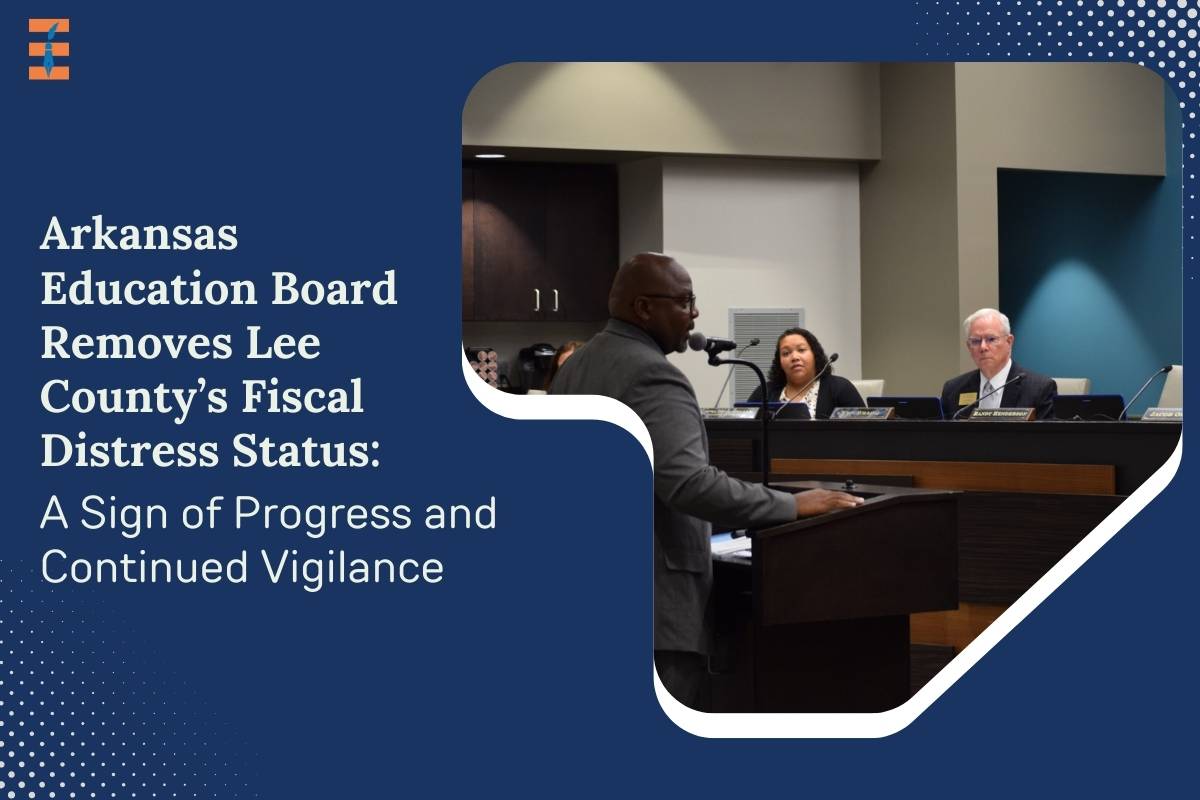
Arkansas Education Board Removes Lee County’s Fiscal Distress Status: A Sign of Progress and Continued Vigilance
In a significant development for Arkansas education, the State Board of Education has voted to remove the Lee County School
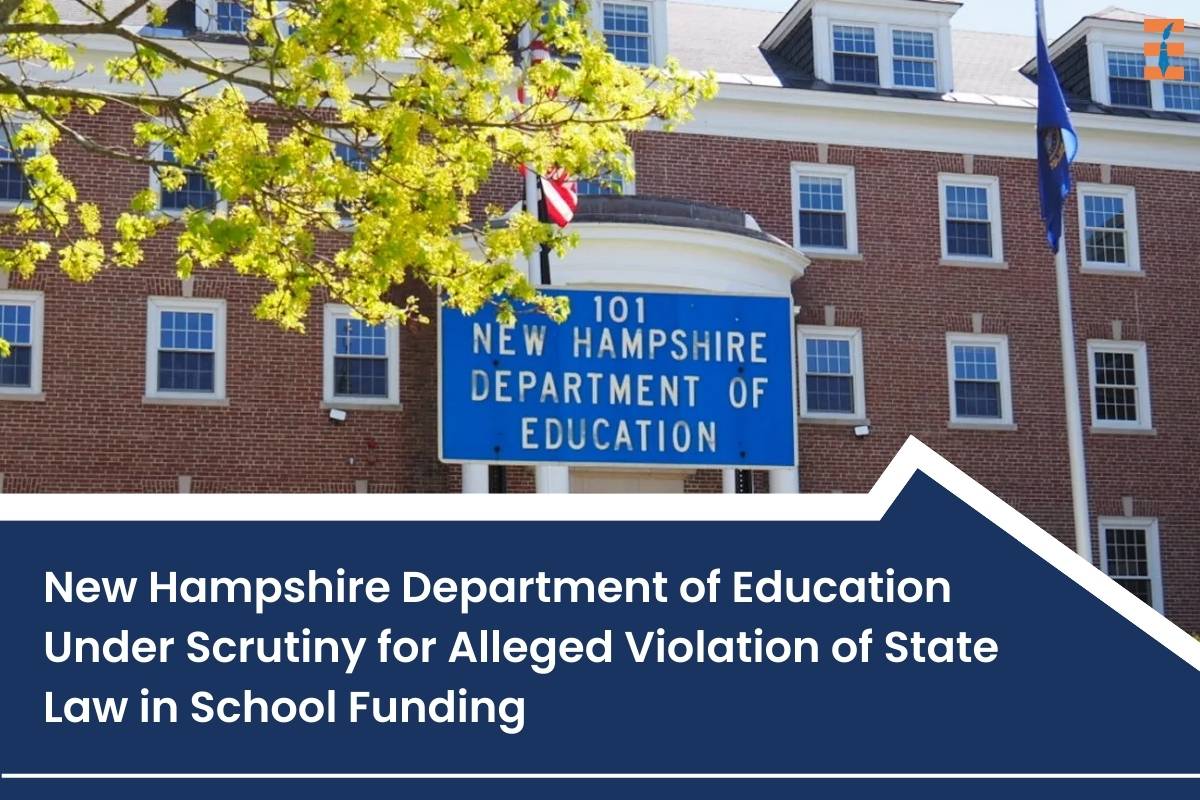
New Hampshire Department of Education Under Scrutiny for Alleged Violation of State Law in School Funding
New Hampshire's ongoing battle over state school funding has reached a critical juncture as concerns mount over potential violations of
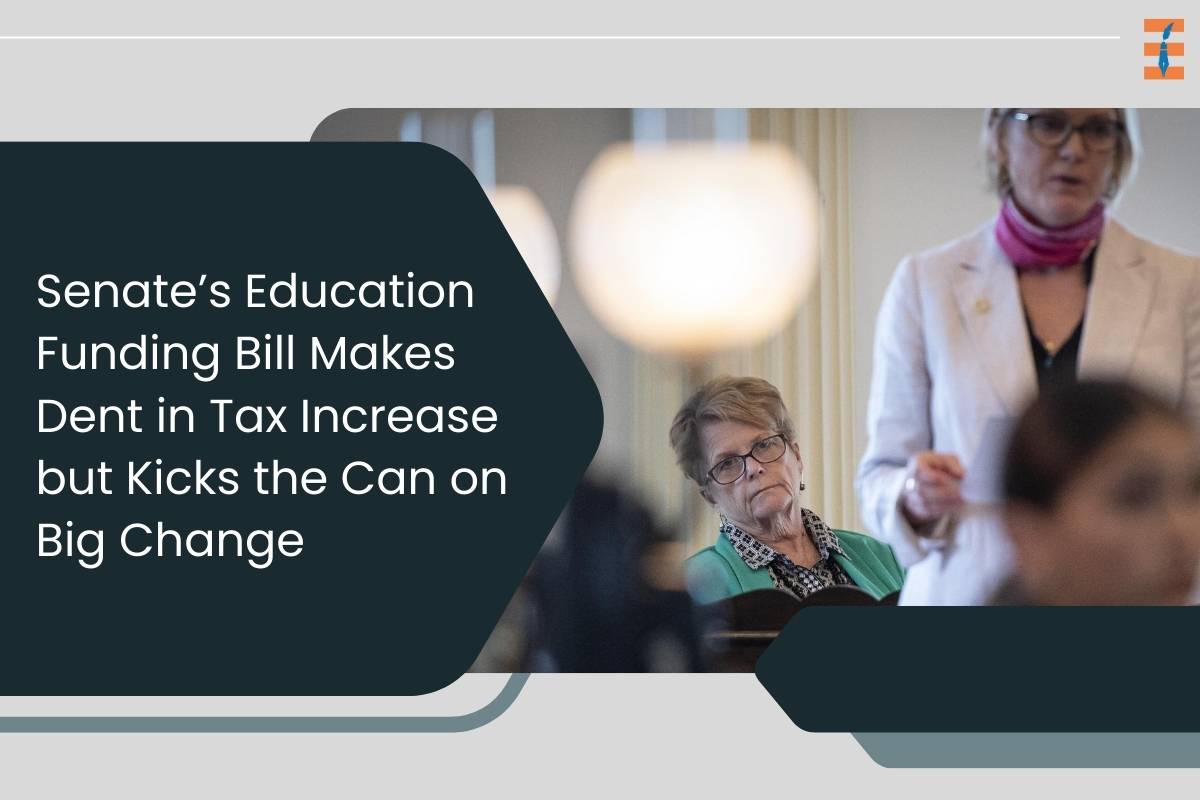
Senate’s Education Funding Bill Makes Dent in Tax Increase but Kicks the Can on Big Change
Source-VTDigger The Vermont Senate’s recent passage of the annual education funding bill has generated both relief and concern among residents
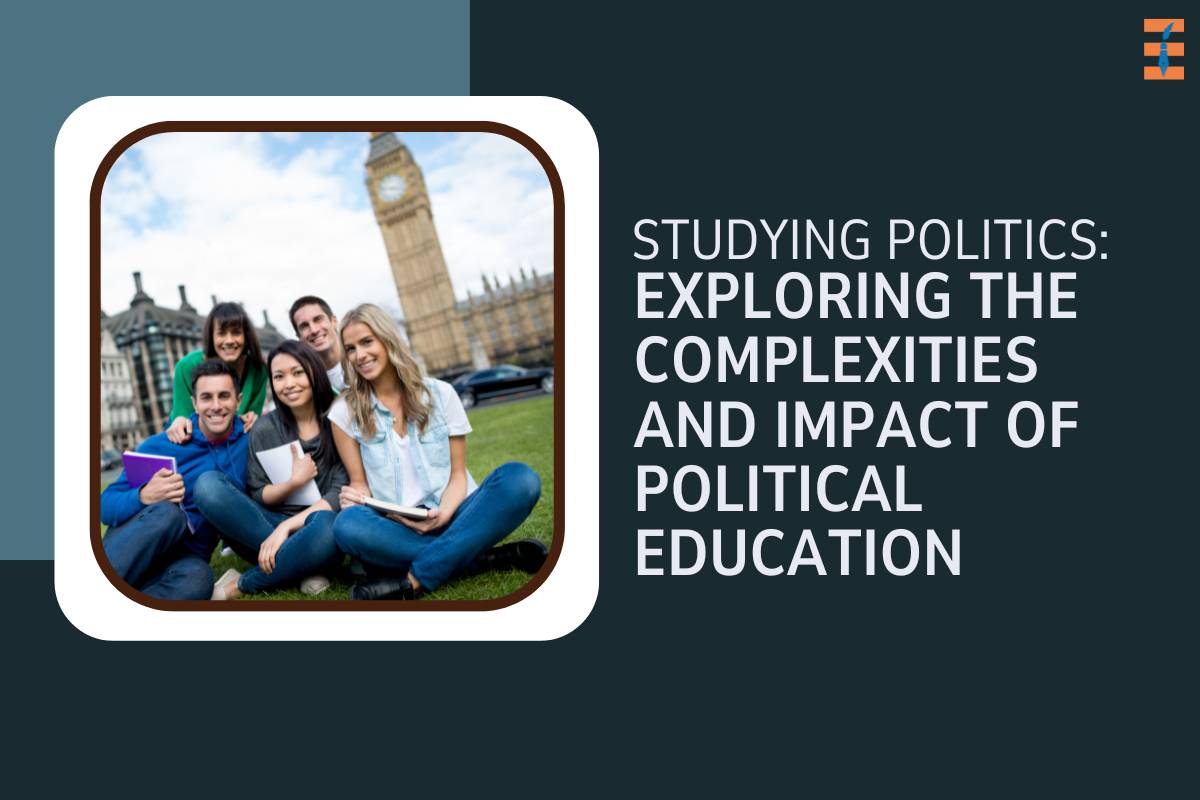
Studying Politics: Exploring the Complexities and Impact of Political Education
Studying politics is an intellectual journey that transcends mere academic pursuits; it is an exploration of power dynamics, governance structures,

Unlocking Potential: The Transformative Power of Trade Schools
In the ever-evolving landscape of education and career development, trade schools stand out as beacons of opportunity, offering a specialized
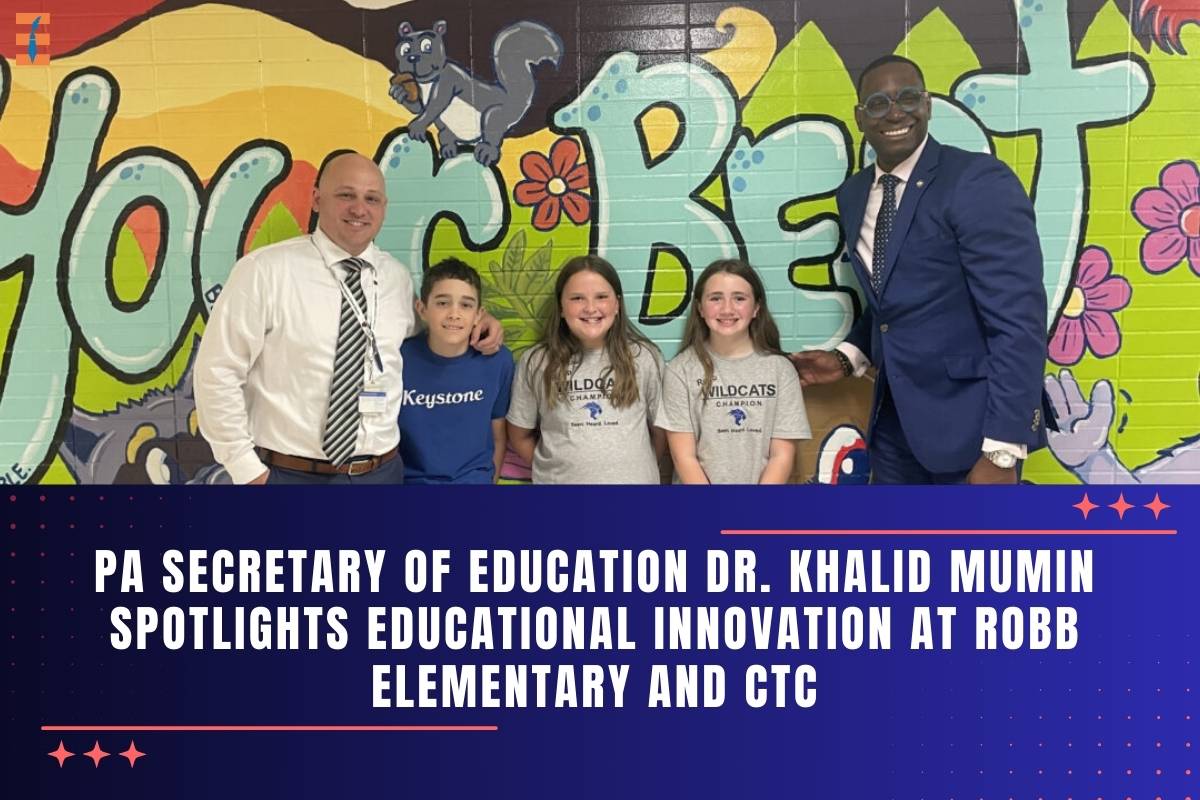
PA Secretary of Education Dr. Khalid Mumin Spotlights Educational Innovation at Robb Elementary and CTC
Source - lockhaven.com Pennsylvania Secretary of Education Dr. Khalid Mumin embarked on a pivotal visit to Robb Elementary and Central

Navigating Success: Unveiling the Depths of Blue Ocean Strategy
The modern business world is a battlefield of fierce competition. Companies relentlessly pursue innovative strategies to gain an edge over
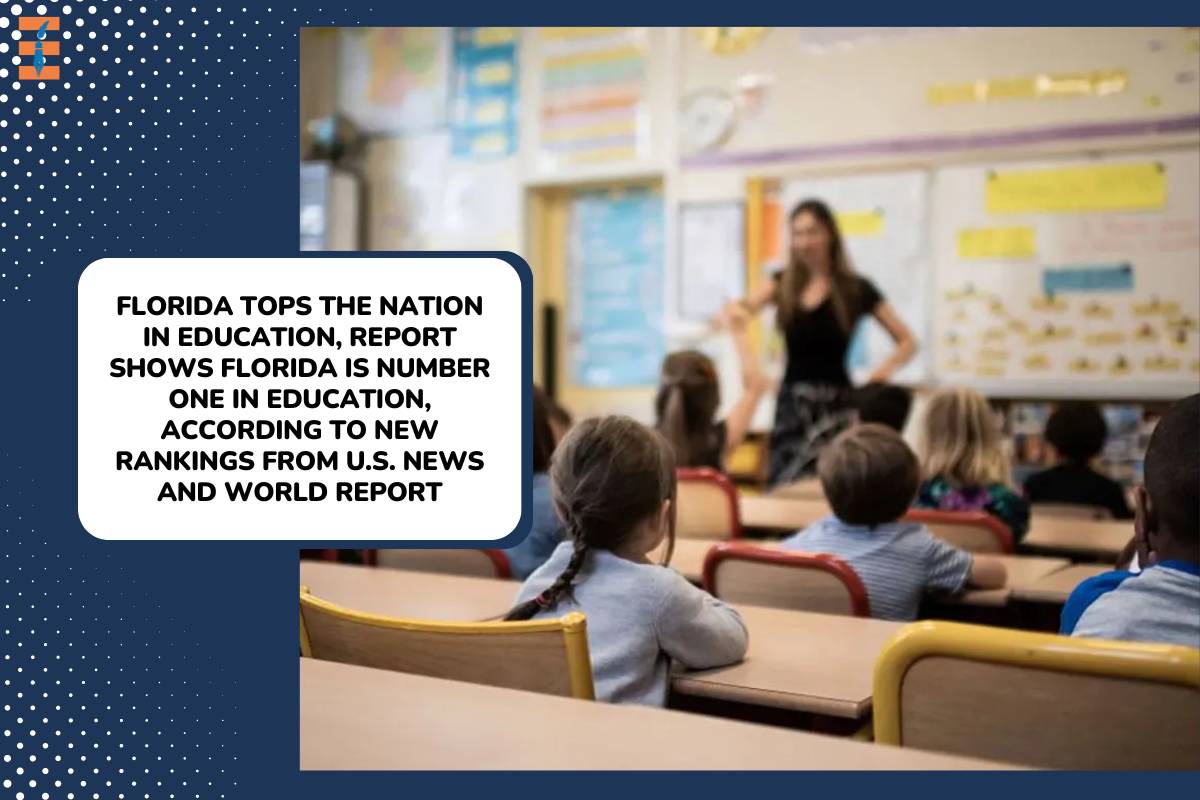
Florida Tops the Nation in Education, Report Shows Florida is Number One in Education, According to New Rankings from U.S. News and World Report
In a recent announcement by US News and World Report, Florida has clinched the top spot as the leading state
Join Our Newsletter!
Get the latest education updates delivered to your inbox.

Future Education Magazine is an exceptional source of knowledge and resources for those looking to choose the right path in education. Whether you are a student, parent, educator, or education enthusiast, our magazine is committed to providing you with insightful and valuable content.
- Professional Courses
- Privacy Policy
- Terms & Conditions
- [email protected]
- +1 (408) 520-9503
- 3277 S White Rd #41 San Jose, CA 95148, United States
Copyright © 2024: Future Education Magazine | All rights reserved.

- Integrations & Access
- Content Partners
- Science Techbook
- Mystery Science
- Pivot Interactives
- DreamBox Math
- Reading Park
- Reading Plus
- Social Studies Techbook
- Augmented Reality
- Professional Learning
- Research & Impact
- Success Stories
- Leadership Blog
- Courageous Leaders
- Communications Resources
- Discovery Educator Network (DEN)
- Virtual Field Trips
- Educator Blog
- Puzzlemaker
- Career & Technical Education
- Teacher Retention
- Supporting Literacy
- Education Funding
- About Corporate Partnerships
- Our Corporate Partnerships
- Join our Network
- STEM Careers Coalition
- Career Connect
Implement a Thriving Career & Technical Education Program
Career and Technical Education (CTE) has been around for decades and has helped millions of students achieve success. So, what role does CTE play today? Today’s educators want to know more about career clusters, career pathways, how AI affects career and technical education, funding, and what a successful CTE program looks like. Read on to learn more about these topics and how CTE can prepare students for success.
Share With Your Colleagues

Download Now: 5 Actions for Education Leaders on CTE Programs
Table of contents, what is career & technical education (cte).
According to the National Center for Education Statistics , Career and Technical Education, or CTE, is defined as the courses and programs in middle and high schools that focus on the skills and knowledge required for specific jobs or fields of work.
In other words, it is an opportunity for students to explore career options and personalize their education pathway based on their career interests as they learn a set of technical and specialized skills needed to succeed in those careers. CTE programs deliver those opportunities to students, and typically include instruction, hands-on training, and certifications that can improve students’ employability and preparedness in a career field.
The concept of Career and Technical Education has evolved over the last 160 years through a variety of legislative acts, organizations, and outreach programs to answer the economic and workforce needs of the time. Today, CTE is an integral part of our education system that prepares future-ready students for a competitive workforce and to become lifelong learners.
What are career clusters?
With the growing number of career fields available, the U.S. Department of Education created the National Career Clusters® Framework to help organize CTE programs, curriculum, and instruction that reflect today’s workforce. There are 16 Career Clusters in the framework that help students understand and explore 79 career pathways —from agriculture, food, and natural resources to transportation, distribution and logistics!
First let’s answer two of the most common questions about CTE to provide more clarity. What is a career cluster and what is a career pathway? A career cluster is a grouping of career pathways related to an industry, like health sciences. And a career pathway, such as therapeutic services, is a group of occupations with similar knowledge and skill requirements. For example, the occupation of a registered nurse belongs to the therapeutic services career pathway, which in turn belongs to the career cluster for health sciences.
Career Cluster
Health Sciences
Career Pathway
Therapeutic Services
Registered Nurse
The National Association of State Directors of Career Technical Education Consortium oversees the Career Clusters Framework. It provides a set of resources for each career cluster and career pathway to help educators develop strategic CTE programs, which include standards, knowledge & skills statements, and plans of study.
Other organizations, like the Bureau of Labor Statistics and state education departments, also use the Career Clusters Framework as a guide to track occupations and career pathways, identify trends, and make adjustments to programs of study and economic projections.
Which careers are trending?
The U.S. Bureau of Labor Statistics (BLS) tracks trends within each career pathway and career cluster. They offer clear data on career information like employment and wages, education and training, and projected job openings. For example, did you know that participation in CTE programs translates to lower unemployment rates and higher benefit rates? T he National Center for Education Statistics is another reliable source for CTE data .
So which careers should we be tracking? Check out the top five career clusters with the fastest growth rate between 2023 – 2030 and the top five emerging career clusters outlined below. According to the BLS , these career clusters are trending due to a variety of technological, societal, and economic factors.
The five career clusters below are projected to have the largest growth rate between 2023-2030 due to a number of factors like an aging population, the emergence of AI, and new technologies in manufacturing. Learn More
- Health Science: 18%
- Information Technology: 15%
- Manufacturing: 12%
- Business Management & Administration: 11%
- Agriculture, Food, & Natural Resources: 9%
The career clusters below are new or rapidly evolving fields predicted to have significant growth in job demand in the near future. Also shown are the factors driving their emergence. Learn More
- Renewable Energy: climate change, technological advancements
- Data Science & Analytics: increased data generation, need for insights
- Cybersecurity: Rise in cyber threats, digital transformation
- Remote Work Solutions: Pandemic, work-life balance
- Mental Health & Wellness: Increased awareness, work-life balance
It’s critical to keep a close eye on these career clusters because rapid growth rate and emerging trends translate into more job opportunities for students. Also, most of these career clusters and their respective career pathways are STEM-related. If you already have a STEM program, curricula, or lab at your school or district, consider how it can work in harmony with your CTE curriculum and how partnerships with industry can support both.
How will AI affect Career & Technical Education?
Artificial Intelligence is taking over conversations, notably within education. For CTE, it’s all about automation, robotics, and how technology is impacting the workforce and our economy. There’s no doubt AI automation will have an affect on CTE and its programs , but it does not have to be a hand-wringing topic. To get ahead of this, educators and students need to understand which career pathways will have less automation risk, and therefore have more high-wage, high-opportunity jobs.
First, how is automation risk measured ? It starts with the skills and training that career clusters and their career pathways require. Transferable skills, for example, are challenging to automate, as well as occupations that require more training or a higher level of education. Therefore, careers that have more of these types of requirements will be less at risk from AI automation.
How should CTE programs adapt?
There are a few steps educators can take to make sure their CTE programs are ready to handle AI and its affects. For one, the programs of study should integrate academic and transferable skills alongside technical skills to give students a comprehensive foundation of knowledge that can be applied across careers. CTE programs should also include work-based learning that provide hands-on experience, and work with the local community to establish apprenticeships that help prepare students for tomorrow’s jobs. Lastly, keep a pulse on which career pathways are trending (as noted above), which skills these careers will require, and how technology like AI will affect them.
How is CTE funded?
Career and Technical Education (CTE) programs, especially those at the high school level, are typically funded through federal, state, and local sources. Even ESSER funds can be used to support CTE programs . Here are some of the common funding sources for CTE programs:
Carl D. Perkins Career and Technical Education Act
Originally signed in 1984, the Perkins Act was reauthorized in 2018 by Congress as The Strengthening Career and Technical Education for the 21st Century Act . The Perkins Act provides $1.5 billion to support career and technical education programs, improve the quality and access of CTE, and align CTE programs with regional economic development. This act requires states to create a sequence of coursework for their CTE program, otherwise known as Programs of Study . You can learn more here .
State Funding
State governments also allocate funding for CTE programs. The amount and distribution of these funds vary from state to state. State funding is typically used to supplement federal funding and support the development, implementation, and enhancement of CTE programs at the local level. Advance CTE tracks information on CTE programs per state , including funding, and shares that information on their website.
Local Education Agency (LEA) Funding
LEAs play an important role in funding CTE programs. They allocate resources from their education budgets to support CTE courses, facilities, instructors, and program management. The specific funding levels and mechanisms vary depending on the local district's priorities and financial capacity.
Local Industry Partnerships
CTE programs often form partnerships with local businesses , industries, and community organizations to provide funding, equipment donations, or in-kind support. The funding from industry partners can also help align the curriculum with local workforce needs and support student internships or apprenticeships.
Grants and Foundations
Competitive grants or donations from foundations, nonprofits, or philanthropic organizations can also be used to fund CTE programs. For example, they can be used for program expansion, innovation, or targeted initiatives to address specific educational or workforce development goals.
An important point to note is that funding should be a reflection of the local educational priorities and policies, as well as the workforce. If you’re looking to fund a CTE program, start locally!
Let's Tackle CTE Together
Learn how discovery education can help.
- SUGGESTED TOPICS
- The Magazine
- Newsletters
- Managing Yourself
- Managing Teams
- Work-life Balance
- The Big Idea
- Data & Visuals
- Reading Lists
- Case Selections
- HBR Learning
- Topic Feeds
- Account Settings
- Email Preferences
The U.S. Education System Isn’t Giving Students What Employers Need
- Michael Hansen

Companies also need to stop fixating on the four-year degree.
There’s a direct disconnect between education and employability in the U.S., where employers view universities and colleges as the gatekeepers of workforce talent, yet those same institutions aren’t prioritizing job skills and career readiness. This not only hurts employers, but also sets the average American worker up for failure before they’ve even begun their career, as new employees who have been hired based on their four-year educational background often lack the actual skills needed to perform in their role. To create change as an industry, we must provide greater credibility to alternate education paths that allow students to gain employable skills. Now is the time for employers to increase credibility for skills-based hiring, to remove stigmas around vocational education, and to move forward to create equal opportunities for all students.
The Covid-19 pandemic stripped millions of Americans of their jobs. As of April 2021, the economy was still down 4 million jobs compared to February 2020. At the same time, we are seeing unprecedented labor shortages, with 8.1 million jobs open and unfilled across the U.S. Markets that saw explosive growth due to the pandemic, such as cybersecurity and technology , are struggling to maintain the levels of innovation needed to continue that trend, because they can’t find the right talent.
- MH Michael Hansen is the Chief Executive Officer of Cengage, an education technology company serving millions of learners worldwide.
Partner Center
- Career Outlook
- Admission Requirements
How does education influence professional success?
April 16, 2020 | 4 Min Read
There’s a growing emphasis on employability within higher education. Increasingly, programmes are being designed to ensure students make a smooth transition into working life.
This is certainly true at the University of Birmingham. We believe education and personal success are intimately linked, and that’s perhaps why we’re consistently ranked in the top 15 UK universities for employability 1 . According to the latest data from the Higher Education Statistics Agency (HESA), 94.8% of our graduates are either in employment or studying within six months of leaving 2 .

Figure 1: ONS data showing employment levels by the highest level of qualification held (2017)
Securing employment after graduation is typically just the first step, and as alumni go on to accumulate real experience and develop valuable skills while working, the role of education in professional success becomes progressively more obscured. Nevertheless, the evidence that it continues to exert long-term influence on professional success is plentiful.
Earning potential
Not too long ago we remarked on the large volume of articles in the business world promising tips on becoming successful by emulating “successful people”. Though these articles rarely go into depth about just how “success” is defined, the assumption most articles seem to make is that it’s linked primarily to career advancement and salary.
If we’re to go by those markers – salary in particular – the latest data strongly supports higher education’s effectiveness. In compiling its recent ‘Absolute Returns’ report 3 , the independent Institute for Fiscal Studies found that female and male graduates are earning 28 percent and 8 percent more on average than their non-graduate counterparts by the age of 29.
Look to any kind of up-to-date ‘rich list’ and you’ll find further evidence of the near-necessity of higher education. Forbes top-five mainstays Jeff Bezos, Carlos Slim and Warren Buffett are all graduates, L’Oréal heir and world’s richest woman Francoise Bettencourt Meyers inherited a fortune built by her graduate grandfather, and while tech-giant founders Bill Gates and Larry Ellison are famous college drop-outs, both have publicly acknowledged the importance of the time they did spend in study.
Career possibilities
Though an important one, salary is just one aspect of professional success. Career paths are also affected by the decision to progress to higher education – most obviously, law and medicine are exclusive to graduates, but different industries provide a range of roles exclusively available to this population.
Public administration education and health is a sector dominated by graduates, for example, as the latest ONS data shows.

Figure 2: ONS data showing the percentage of graduates and non-graduates employed in each industry group (2017)
Career progression
Higher salaries and skillsets point towards an employment pattern where graduates enjoy greater seniority within businesses. The earnings data we touched on earlier can be put down, in part at least, to graduates finding their way into higher-skilled positions in better paying industries, but it is also a reflection of the greater suitability of graduates for senior and leadership roles.

Figure 3: ONS data showing the percentage of graduates and non-graduates working in each skill-level group (2017)
Although employers place a high emphasis on workplace skills, with some even arguing that graduates lack such skills 4 , universities are keen to maintain and further improve solid graduate employment rates. The rapid rise in average pay for graduates shows that the vast majority of university students adapt and advance quickly once in a position.
So, why is this? Graduate aptitude is obviously tested through academic grading, but the life skills necessary for negotiating through a three-year course are often underestimated. Learning at university is a disciplined process testing a great range of analytical and linguistic skills at the root of most of human endeavour. Simple self-confidence and perseverance are also tested, along with timekeeping, creative problem solving and the self-actualisation necessary to argue a case for advancement.
Define success for yourself
The proof that education influences professional success is seen via a wealth of employment data, showing that earning potential is higher, career possibilities are wider and career progression faster. The value of a degree is not just in the literal application of the knowledge gained from different courses, but in the skills and habits picked up via the process of study.
How do you define success? Is a person more likely to be successful if they graduate from university? Tell us in the comments below.
The University of Birmingham offers a range of online degrees . If you are interested in returning to study via distance learning, please fill out our request for information form or contact a member of our Admissions Team.
References:
- UNKNOWN. (2018) Graduate Employability: Top Universities in the UK Ranked by Employers 2018 [online] Available at: <https://www.turn2us.org.uk/Benefit-guides/Universal-Credit/What-is-Universal-Credit> [Accessed 16.08.2019]
- UNKNOWN. (2018) Employment of Leavers: UK Performance Indicators 2016/17 [online] Available at: <https://www.hesa.ac.uk/news/05-07-2018/employment-of-leavers-tables> [Accessed 16.08.2019]
- UNKNOWN. (2018) Undergraduate Degrees: Labour Market Returns [online] Available at: <https://www.gov.uk/government/publications/undergraduate-degrees-labour-market-returns> [Accessed 16.08.2019]
- PATON, G. (2013) University Leavers Lack the Essential Skills for Work, Employers Warn [online] Available at: <https://www.telegraph.co.uk/education/educationnews/10306211/University-leavers-lack-the-essential-skills-for-work-employers-warn.html> [Accessed 16.08.2019]
Recommended Articles
Fast track your career with one of three new online, masters level degrees from the university of birmingham, triumph through innovation: covid-19’s effect on business, online msc international management: how to impress in your admissions interview, experience isn’t always enough – fast track your career with an online msc international management, 5 reasons why lockdown is the perfect time to study online.
On This Page
Get Started
Teachers’ Careers Go Through Phases. They Need Support in Each

- Share article
How can school leaders make sure that teachers are motivated and engaged throughout their careers? The first step might be better understanding the different phases—and associated needs—of teachers’ professional lives.
Recent survey data shows that teachers, on average, experience a dip in job satisfaction a few years into their careers . The EdWeek State of Teaching survey, which polled a nationally representative sample of nearly 1,500 teachers in October 2023, found that teachers with three to nine years of classroom experience have worse morale than their peers who have either more or less experience. Federal survey data show a similar trend.
Those findings align with research from key scholars in the field, including Christopher Day, a professor of education at the University of Nottingham in England. Day’s work delineates the way teachers’ commitment, well-being, identity, and effectiveness can vary throughout their careers.

Understanding the needs and experiences of teachers in different phases of their careers can help improve what Day calls “quality retention.”
“All classrooms need to be staffed equally by well-qualified teachers who are fully committed to the academic progress, wellbeing, and achievement of every student,” Day said in an interview.
His research builds on the foundational work of Michael Huberman, a professor of education at the University of Geneva in Switzerland who categorized the stages of teachers’ professional lives based on interviews with secondary Swiss teachers in the 1970s and 1980s.
This work matters, Huberman once wrote, because if we “identify the conditions under which a particular phase in the career cycle is lived out happily or miserably,” we can “put together an appropriate support structure.”
Here are teachers’ professional life phases
Day conducted a mixed-methods study of 300 primary and secondary teachers across England who were in different phases of their careers. The study, published in 2007, sought to investigate variations in teachers’ effectiveness over their careers through interviews with the teachers and analyses of student data that were collected over three years.
He identified six professional life phases for teachers that remain relevant today.
- In years zero to three , new teachers are developing their sense of efficacy in the classroom. They’re getting a handle on the workload, the scale of which can come as a shock. They’re also beginning to form their teacher identity.
- In years four to seven , teachers are continuing to build and sustain their sense of identity, self-efficacy, and effectiveness. But teachers may struggle to remain resilient in the face of a heavy workload or a lack of support in this period.
- In years eight to 15 , teachers likely experience changes in their role and identity. For instance, they might become parents, prompting an adjustment to their work/life balance. At this stage, they might also doubt their commitment to their career or feel like they’ve hit a plateau.
- In years 16 to 23 , teachers are often in the thick of trying to balance their personal responsibilities (such as raising kids or caring for aging parents) with their work. Work/life tensions can contribute to a decline in motivation and commitment, especially if paired with a feeling of career stagnation. But if teachers see good results in their work or more career opportunities, they will be more likely to see increased motivation and engagement.
- In years 24 to 30 , teachers are likely committed to staying in the profession until they retire. They will either sustain a strong sense of motivation for their last few years in the classroom or hold on half-heartedly. Health and energy issues can contribute to flagging morale, as can a loss of moral purpose.
- From year 31 on , retirement is in sight. Teachers either maintain their commitment or feel tired and trapped.
There’s not an exact cut-off between phases, Day said—there may be some overlap and intersection. And the journey of job satisfaction and morale isn’t linear.
“Teachers will move backward and forwards within and between phases during their working lives for all kinds of reasons concerning personal history, psychological, social, and systemic change factors,” he wrote in a 2012 paper . “Taking on a new role, changing schools, teaching a new age group or new syllabus, or learning to work in new ways in the classroom will almost inevitably result in development disruption, at least temporarily.”
But school leaders should understand these general trends to know how to best meet their staff’s needs, Day said.
What takes a toll on teachers’ well-being
Effective school leadership, supportive colleagues , and a strong personal support network are the main factors that contribute to teachers maintaining a positive sense of agency, resilience, and commitment, Day said.
Meanwhile, a heavy workload , poor behavior from students, and ineffective and unsupportive school leadership are all negative factors that contribute to teachers feeling like their effectiveness is at risk or declining, he said.

Also, he said, it’s important for teachers to maintain a strong professional identity. School leaders who value and respect teachers, and involve them in decisionmaking, play into that, he said.
Teachers “need to be driven by values,” Day said. “Those values—whatever else they are—have to be values of care and values of ambition for the learning and achievement and well-being of the students they teach.”
Teachers’ energy levels—intellectual, emotional, and physical—contribute to their motivation and commitment, too, he said.
“What you need in teachers are teachers who care, teachers who are knowledgeable—they’re lifelong learners,” Day said. “You can’t teach well in school if you’re not a learner yourself, especially with AI coming on stream . Teachers are going to have to adapt their roles. ... Where teachers aren’t valued, they’re less likely to want to adapt.
“When they’re not supported in terms of their own professional learning, the same will apply,” he continued. “All those are kind of a plethora of connections between the capabilities, the responsibilities, the motivators that teachers have for staying.”
Sign Up for EdWeek Update
Edweek top school jobs.

Sign Up & Sign In

More From Forbes
Meet the u.s. presidential scholars for 2024.
- Share to Facebook
- Share to Twitter
- Share to Linkedin
President Lyndon Johnson established the Presidential Scholars program by executive order in 1964. ... [+] (Photo by Keystone/Getty Images)
The 2024 class of U.S. Presidential Scholars was announced last week by U.S. Secretary Of Education Miguel Cardona.
This year’s group, the 60th in the program’s history, consists of 161 outstanding high school seniors, who were selected for their accomplishments in academics, the arts, and career and technical education fields as well as for a commitment to community service and leadership.
Being named a U.S. Presidential Scholar is considered one of the nation’s most prestigious academic awards for high school graduates. You can see the full list of this year’s class here.
“The 161 high school seniors selected for the 60th anniversary of the U.S. Presidential Scholars represent the best of our nation’s schools and inspire hope in the bright future of this country,” said Cardona, in a news release. “On behalf of President Biden, I am delighted to celebrate their accomplishments, and encourage these scholars to continue to aim high, lift up others, and embrace opportunities to lead.”
Established in 1964 by an executive order from President Lyndon B. Johnson, the Presidential Scholars are selected annually by the White House Commission on Presidential Scholars . This year the selections were made from about 3.7 million high school seniors on the basis of outstanding academic performance, artistic achievements, technical excellence, essays, and commitment to community service and leadership.
Apple iOS 17.5 Major iPhone Software Release: Should You Upgrade?
Tyson fury vs oleksandr usyk results winner scorecard and reaction, baby reindeer piers morgan seeks richard gadd for interview after real martha segment.
More than 5,700 candidates qualified for the 2024 awards determined by outstanding performance on the College Board SAT or ACT exams or through nominations made by chief state school officers, other partner recognition organizations and YoungArts , the National Foundation for the Advancement of Artists.
The selection of the Presidential Scholars is guided by a quota. Each year’s class is comprised of one male and one female student from every state, the District of Columbia, Puerto Rico, and U.S. families living abroad. In addition, 55 other scholars are chosen – 20 in the arts, 20 in career and technical education and 15 selected at-large. The award does not carry any monetary stipend.
Since its inception, the U.S. Presidential Scholars Program has honored more than 8,200 of the nation's top-performing students. The program was expanded in 1979 to recognize students who demonstrate exceptional talent in the visual, literary and performing arts. In 2015, the program was again broadened to recognize students who demonstrate ability and accomplishment in career and technical education fields.
California led this year’s list with nine scholars; followed by New Jersey, Florida, New York, and Virginia, each with six. Four states (Texas, Illinois, Kentucky and Washington) had five scholars each.
As in years past, this year’s group includes students who have achieved outstanding accomplishments in a broad range of areas. Several earned perfect or near-perfect scores on the ACT or SAT.
Others have won some of the nation’s most competitive college scholarships, like Connecticut’s Leigh M. Foran , who was awarded a National Merit Scholarship, or Esperance J. Han , from Ocala, Florida, who has been named a Quest Bridge scholar.
Many of the scholars have been recognized for their volunteer work and civic contributions.
- Matteo Huish , from Mesa, Arizona, co-founded two nonprofits — Brothers and Sisters Serving Others and Students Supporting Brain Tumor Research, and along the way he also became a published author;
- Michigan’s Aanya Shah is a disability advocate who has served as the state president of the Health Occupations Students of America organization and also a National Youth Council member for UNICEF USA. She’s headed to Johns Hopkins University;
- Ahryanna P. McGuirk from Kalāheo High School in Hawai’i serves as an executive officer on the Hawai’i State Student Council. A volunteer on the Youth Leadership Council for Make-A-Wish Hawai’i, she started the Wish Club at Kalāheo High School, a group that helps grant wishes to children with critical illnesses. She’s currently working toward earning her private pilot license through a scholarship at the Pearl Harbor Aviation Museum.
Among the artists selected as Presidential Scholars:
- Patrick Flanagan , from Dallas, is an award-swimming photographer;
- Alabama School of Fine Arts ’ Nalin Reed is a theater student;
- Chase Phillips from duPont Manual Magnet High School in Louisville, Kentucky plans to study musical theater in college. He’s active in his school’s Black Student Union (BSU), performs with the Keen Dance Theatre and has worked with the Immigrant Refugee Assistant Program;
- And you can listen to Ale Fonseca, a singer and composer from, Miami, Florida, perform here.
The list includes several varsity athletes like Ella Newhouse , a founding member of the Cascia Hall swim team in Tulsa, Oklahoma. She's headed to the University of Oklahoma. Collier DeClerk played football at Bentonville West High School in Arkansas; Teagan Erbele was a basketball standout at Napoleon High School in North Dakota; and Rachel Cooper , of Centennial, Colorado, was a varsity swimmer.
The Presidential Scholars Class of 2024 will be recognized for their outstanding achievements this summer with an online recognition program.
- Editorial Standards
- Reprints & Permissions
Join The Conversation
One Community. Many Voices. Create a free account to share your thoughts.
Forbes Community Guidelines
Our community is about connecting people through open and thoughtful conversations. We want our readers to share their views and exchange ideas and facts in a safe space.
In order to do so, please follow the posting rules in our site's Terms of Service. We've summarized some of those key rules below. Simply put, keep it civil.
Your post will be rejected if we notice that it seems to contain:
- False or intentionally out-of-context or misleading information
- Insults, profanity, incoherent, obscene or inflammatory language or threats of any kind
- Attacks on the identity of other commenters or the article's author
- Content that otherwise violates our site's terms.
User accounts will be blocked if we notice or believe that users are engaged in:
- Continuous attempts to re-post comments that have been previously moderated/rejected
- Racist, sexist, homophobic or other discriminatory comments
- Attempts or tactics that put the site security at risk
- Actions that otherwise violate our site's terms.
So, how can you be a power user?
- Stay on topic and share your insights
- Feel free to be clear and thoughtful to get your point across
- ‘Like’ or ‘Dislike’ to show your point of view.
- Protect your community.
- Use the report tool to alert us when someone breaks the rules.
Thanks for reading our community guidelines. Please read the full list of posting rules found in our site's Terms of Service.
- Latest News
- Emergencies
- Ask the Law
- GN Fun Drive
- Visa+Immigration
- Phone+Internet
- Reader Queries
- Safety+Security
- Banking & Insurance
- Dubai Airshow
- Corporate Tax
- Top Destinations
- Corporate News
- Electronics
- Home and Kitchen
- Consumables
- Saving and Investment
- Budget Living
- Expert Columns
- Community Tips
- Cryptocurrency
- Cooking and Cuisines
- Guide to Cooking
- Art & People
- Friday Partner
- Daily Crossword
- Word Search
- Philippines
- Australia-New Zealand
- Corrections
- From the Editors
- Special Reports
- Pregnancy & Baby
- Learning & Play
- Child Health
- For Mums & Dads
- UAE Success Stories
- Live the Luxury
- Culture and History
- Staying Connected
- Entertainment
- Live Scores
- Point Table
- Top Scorers
- Photos & Videos
- Course Reviews
- Learn to Play
- South Indian
- Arab Celebs
- Health+Fitness
- Gitex Global 2023
- Best Of Bollywood
- Special Features
- Investing in the Future
- Know Plan Go
- Gratuity Calculator
- Notifications
- Prayer Times
Gulf News Edufair 2024: Embracing lifelong learning for career success
Uae education.
- Environment
Panelists at Gulf News Edufair emphasise the importance of continuous skill development

The final day of the Sixth edition of the Gulf News Edufair 2024 in Dubai saw an engaging panel discussion on "Lifelong Learning - Continuous Skill Development for Career Growth and Adaptation." The discussion highlighted the need for continuous skill development and the changing landscape of education, urging students and educators alike to embrace lifelong learning as an essential component for career growth and adaptation in an ever-evolving world.
The panel featured speakers Taher Kapasi, Head of Education ACCA, Eurasia and Middle East, Mustufa Ali, Associate Lecturer at Phoenix Financial Training, and Natasha Parikh, CEO and Career Counselor at My Learning Curve. The discussion was moderated by Lachlan Kitchen.
Taher Kapasi emphasised the shifting mindset towards lifelong learning among today's students. "Today’s students are much more aware and conscious of lifelong learning, which is about adapting and building the right skill set. While many parents still emphasise getting high grades, the availability of information has shifted the focus towards lifelong learning. It’s increasingly becoming embedded in the minds of the next generation."
Reflecting on the evolution of education, Mustufa Ali shared his insights from both his student and trainer experiences. "From my experience as a student and now as a trainer, universities have significantly changed their approach to lifelong learning. Back in my day, you either attended university in person or studied online. Today, the concept of remote learning has evolved, with pre-recorded videos and platforms like LinkedIn offering courses that students can access anytime. For example, at Phoenix, we not only teach financial curriculum but also offer workshops on using spreadsheets, writing CVs, and other skills that enhance workplace readiness."
Natasha Parikh highlighted the importance of a holistic approach to education. "Academics are important, but lifelong learning is a mindset that needs to be adopted across families, schools, universities, and organizations. Universities are not just looking for high grades but also at how students apply their academic knowledge practically. With AI and other technologies, it’s crucial to upskill continually. Universities are adapting to this need by fostering environments that encourage experiential learning."
The panel also delved into practical advice for students aiming to showcase their lifelong learning skills to potential employers.
Taher Kapasi advised on the importance of networking and personal branding. "Networking is crucial. Engage in networking sessions, build your social profile, and participate in practical experiences. It’s about demonstrating curiosity, expanding your knowledge, and building confidence. Personal branding on platforms like LinkedIn can also be powerful. Your online presence should reflect your professional identity consistently."
When asked about the relevance of the traditional CV, Mustufa Ali noted that while it remains important, demonstrating a willingness to learn new skills is critical. "The CV is still important, but it's not the only factor. Showing a willingness to learn new skills is critical. Involvement in diverse projects can demonstrate your skill set effectively. It's about showcasing a learning mindset and adaptability to change."
Natasha Parikh addressed the pressures students face from parents who may not fully understand the importance of developing soft skills. "Yes, there is pressure from parents and society. It's crucial to balance academics with extracurricular activities that build soft skills. Lifelong learning is not about learning everything but focusing on quality over quantity. Participation in clubs and projects demonstrates the application of academic knowledge."
More From Education

Gulf News Edufair 2024 draws record attendance

Exhibitors elated with higher turnout and quality leads

Edufair delights visitors with extensive degree options
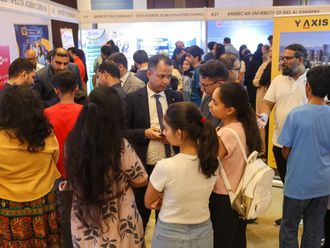
Record turnout makes Gulf News Edufair all-out success

50% of school fees to be covered for 1,800 UAE students

Man killed after being hit by vehicle on Sharjah road

Sharjah: Hit-and-run driver caught after injuring girl

Storm-affected Dubai Metro stations to reopen on May 19

Minor earthquake hits UAE, no damages reported

Video: Sheikha Bodour highlights value of fairy tales
City win historic 4th straight premier league title, sheikh hamdan reviews space projects, meets astronauts, blue origin flies six to space after two-year hiatus, ship that destroyed baltimore bridge set to move monday, uae team emirates’ pogacar soars to landmark giro win.

Get Breaking News Alerts From Gulf News
We’ll send you latest news updates through the day. You can manage them any time by clicking on the notification icon.

Middle School Counselor
🔍 redwood city, california, united states.
Middle School Counselor Student Services Officer 2 Job Code: 7502 Job Grade: H FTE: 100%, Exempt Stanford’s Online High School is an accredited, diploma-offering, highly selective independent high school, offering courses for grades 7-12. The mission of Stanford Online High School (OHS) is to foster a worldwide community of intellectually adventurous students and teachers. Our courses, created and taught by specialists in their academic fields, encourage students to continuously develop and test their own views as they integrate knowledge across disciplines. Small class sizes and synchronous class meetings populated by curious and engaged classmates and teachers make learning a meaningful and social experience. Students form close bonds with each other and with the school community through classes, clubs, meetups, and other school activities, all supported by caring educators. Our school brings together students with diverse backgrounds from across the world. Stanford Online High School offices are located at the Stanford Redwood City Campus , however this position will be performed completely online and requires you to have the ability, technology, and appropriate tools to successfully perform all job duties online. You must be located within the United States of America and be available to travel to the main campus up to three times per year for important in-person events. The Middle School Counselor plays a key role in our MS program by offering direct counseling services and ensuring our 7th and 8th grade students have the support they need to succeed academically and thrive in their social-emotional development. As part of our robust student support staff, the MS counselor has the opportunity to provide intensive short-term individual counseling and is also responsible for designing, creating, and delivering workshops and other group-oriented experiences for students. The MS counselor works closely with our high school counseling staff and Student Life team to integrate the MS counseling program into a comprehensive approach to enhancing student well-being and extracurricular life. Your responsibilities include:
- One-on-one short-term confidential counseling for students.
- Individual support for student academic success using a “fading scaffold approach,” in which as students gain competence and confidence, support fades, allowing them to take full ownership.
- Consultation with parents, instructors, and other educators, such as tutors or learning specialists with whom families are working.
- Referrals to in-house resources as well as outside support services, such as local learning specialists and mental health professionals, as needed.
- Development and delivery of workshops for middle school students on topics such as learning strategies, onboarding for new students, communication skills, stress management, and other topics.
- Intervention and advocacy at a systemic level within our school.
To be successful in this position, you will bring:
- Bachelor’s degree and three years of relevant experience, or combination of education and relevant experience.
- Interpersonal Skills: Demonstrates the ability to work well with Stanford colleagues and clients and with external organizations.
- Promote Culture of Safety: Demonstrates commitment to personal responsibility and value for safety; communicates safety concerns; uses and promotes safe behaviors based on training and lessons learned.
- Strong communication skills to clearly and effectively communicate information to internal and external audiences, client groups, and management.
- Advanced analysis and problem solving skills.
- Advanced computer skills, including experience with Microsoft Office Suite.
- Advanced student service skills.
- Relevant computer systems/technology experience.
- Understanding of financial transactions.
- Ability to ensure and apply compliance with legal, financial, and university policies and external regulations.
Physical Requirements:
- Frequently sit, perform desk-based computer tasks.
- Occasionally stand, walk, twist, use fine manipulation, grasp, use a telephone, write by hand, sort and file paperwork, lift, carry, push, and pull objects that weigh up to 10 pounds.
This role is open to candidates anywhere in the United States. Stanford University has five Regional Pay Structures . The compensation for this position will be based on the location of the successful candidate. The expected pay range for this position is $56,000 to $86,000 per annum. Stanford University provides pay ranges representing its good faith estimate of what the university reasonably expects to pay for a position. The pay offered to a selected candidate will be determined based on factors such as (but not limited to) the scope and responsibilities of the position, the qualifications of the selected candidate, departmental budget availability, internal equity, geographic location, and external market pay for comparable jobs.
At Stanford University, base pay represents only one aspect of the comprehensive rewards package. The Cardinal at Work website ( https://cardinalatwork.stanford.edu/benefits-rewards ) provides detailed information on Stanford’s extensive range of benefits and rewards offered to employees. Specifics about the rewards package for this position may be discussed during the hiring process. Why Stanford is for You Imagine a world with limitless connections and access to knowledge. C onsider lives saved through first-ever organ transplants and research to cure illnesses. Stanford University has revolutionized the way we live and enrich the world. Supporting this mission is our diverse and dedicated 17,000 staff. We seek talent driven to impact the future of our legacy. Our culture and unique perks empower you with:
- Freedom to grow. We offer career development programs, tuition reimbursement, or audit a course. Join a TedTalk, film screening, or listen to a renowned author or global leader speak.
- A caring culture. We provide superb retirement plans, generous time-off, and family care resources.
- A healthier you. Climb our rock wall, or choose from hundreds of health or fitness classes at our world-class exercise facilities. We also provide excellent health care benefits.
- Discovery and fun. Stroll through historic sculptures, trails, and museums.
- Enviable resources. Enjoy free commuter programs, ridesharing incentives, discounts and more!
How to Apply We invite you to apply for this position by clicking on the “Apply for Job” button. To be considered, please submit a resume AND cover letter along with your online application. Applications will be considered until the position is filled. *Note: The job duties listed are typical examples of work performed by positions in this job classification and are not designed to contain or be interpreted as a comprehensive inventory of all duties, tasks, and responsibilities. Specific duties and responsibilities may vary depending on department or program needs without changing the general nature and scope of the job or level of responsibility. Employees may also perform other duties as assigned. *Visa sponsorship is not available for this position. All candidates must be eligible to work in the U.S. *Consistent with its obligations under the law, the University will provide reasonable accommodation to any employee with a disability who requires accommodation to perform the essential functions of the job. *Stanford is an equal employment opportunity and affirmative action employer. All qualified applicants will receive consideration for employment without regard to race, color, religion, sex, sexual orientation, gender identity, national origin, disability, protected veteran status, or any other characteristic protected by law.
- Schedule: Full-time
- Job Code: 7502
- Employee Status: Regular
- Requisition ID: 103291
- Work Arrangement : Remote Eligible
My Submissions
Track your opportunities.
Global Impact We believe in having a global impact
Climate and sustainability.
Stanford's deep commitment to sustainability practices has earned us a Platinum rating and inspired a new school aimed at tackling climate change.
Medical Innovations
Stanford's Innovative Medicines Accelerator is currently focused entirely on helping faculty generate and test new medicines that can slow the spread of COVID-19.
From Google and PayPal to Netflix and Snapchat, Stanford has housed some of the most celebrated innovations in Silicon Valley.
Advancing Education
Through rigorous research, model training programs and partnerships with educators worldwide, Stanford is pursuing equitable, accessible and effective learning for all.
Working Here We believe you matter as much as the work

I love that Stanford is supportive of learning, and as an education institution, that pursuit of knowledge extends to staff members through professional development, wellness, financial planning and staff affinity groups.
School of Engineering

I get to apply my real-world experiences in a setting that welcomes diversity in thinking and offers support in applying new methods. In my short time at Stanford, I've been able to streamline processes that provide better and faster information to our students.
Phillip Cheng
Office of the Vice Provost for Student Affairs

Besides its contributions to science, health, and medicine, Stanford is also the home of pioneers across disciplines. Joining Stanford has been a great way to contribute to our society by supporting emerging leaders.
Denisha Clark
School of Medicine

I like working in a place where ideas matter. Working at Stanford means being part of a vibrant, international culture in addition to getting to do meaningful work.
Office of the President and Provost
Getting Started We believe that you can love your job
Join Stanford in shaping a better tomorrow for your community, humanity and the planet we call home.
- 4.2 Review Ratings
- 81% Recommend to a Friend
View All Jobs
TYRE PARTNER

ASSOCIATE PARTNER

CUET UG 2024 Admit Card Released For CBT Exams, Steps to Download
Curated By : Sukanya Nandy
Last Updated: May 19, 2024, 12:53 IST
New Delhi, India

CUET UG 2024 aspirants can download their hall tickets from the official website at exams.nta.ac.in (Representative image)
CUET UG 2024 admit card released for CBT exams to be conducted on May 21, 22, and 24. This year, around 13.48 lakh students have registered for the exams.
The National Testing Agency (NTA) has released the admit cards for the Common University Entrance Test Undergraduate (CUET UG) 2024 for the CBT (Computer-based test mode) exams to be held on May 21, 22, and 24. CUET UG 2024 aspirants can download their hall tickets from the official website at exams.nta.ac.in.
As per the schedule, the exams are being held between May 15 and May 31. This entrance exam acts as a single platform for students seeking admission to undergraduate courses across various universities. The CUET UG 2024 exams are being held in hybrid mode (CBT and Pen and Paper) at 380 examination centres, including 26 outside India. This year, around 13.48 lakh students have registered for the exams.
CUET UG 2024 Admit Card: Steps To Download
Step 1: Go to the official website at exams.nta.ac.in.
Step 2: On the homepage, look for the section related to “Admit Card” or “Download Admit Card” under the “Candidates” tab.
Step 3: Then, click on the “Download Admit Card” link.
Step 4: Key in your login credentials (Application ID and password or date of birth).
Step 5: After entering the details, click on “Submit” or “Download” option to access the admit card.
Step 6: Check all the details mentioned on the hall ticket and download it.
The admit card is a crucial document that includes information such as the candidate’s name, roll number, examination centre, and date, and time of the exam. It is important to note that all candidates must bring a printout of their admit card to the examination centre, as well as a valid ID proof for verification.
Meanwhile, the NTA has said that the CUET UG exam has been postponed for students at a centre in Uttar Pradesh’s Kanpur as the wrong question paper was distributed. It will now be conducted on May 29 . “The exam will be conducted on May 29 for over 220 students at an exam centre at Maharana Pratap Group of Colleges in Kanpur. This decision was taken after a wrong question paper was distributed on May 15,” a senior NTA official told PTI.
Stay ahead with all the exam results updates on News18 Website .
- college admissions
Severnoye Kladbishche
Ulyanovsky district, ulyanovsk oblast, russia.
- Plans and Pricing
- search Person Search
- place Cemetery Search
- device_hub BillionGraves Tree
- live_help Photo Requests
- person Hire an Expert
- camera_alt Take Photos
- edit Transcribe
- video_library Training Videos
- more_vert More
- help Get Help
- exit_to_app Login
Change Your Language
You can change the language of the BillionGraves website by changing the default language of your browser.
- Add images of the cemetery gates
- Add headstone images
Search records in Severnoye Kladbishche
{{fullname}}, my photo requests, not finding what you are looking for, add records to severnoye kladbishche, do you have records from severnoye kladbishche, get started, events at severnoye kladbishche, contributors, cemetery information, number of images, number of headstone records, nearby cemeteries.
© 2024 BillionGraves Holdings, Inc. All Rights Reserved / Terms of Use / Privacy Policy

IMAGES
VIDEO
COMMENTS
Explore various career paths in education, from teaching to administration to supportive roles. Learn about the average salary, job growth rate and duties of each position in the field of education.
The Project on Workforce at Harvard analyzes 316 applications to a grant competition for programs that bridge postsecondary education and employment. It finds opportunities and challenges for the education-to-employment field and highlights innovative models.
2019 Yearly Salary (Median): $61,820. Career Growth Average and Estimates for 2021-2031: 4% (20,600 jobs) Required Education: Special education teachers in public schools are required to have a bachelor's degree and a state-issued certification or license. Learn more about how to become a Special Education Teacher >>>.
By: Amy Loyd, Assistant Secretary for the Office of Career, Technical, and Adult Education Our nation's future depends upon an educated and skilled workforce—especially as economic mobility is in decline and the world of work is rapidly shifting. The preparation of young people through career and college pathways is a powerful, evidence- and research-based approachContinue Reading
Learn about nine common careers in higher education, such as administrators, deans, counselors and professors. Find out the typical salaries, education requirements and professional organizations for each career path.
Explore 25 types of jobs in education, from teaching to counseling to administration, with their average salaries and primary duties. Learn about the education field, its career paths and how to get started in this sector.
Careers in education can be among the most rewarding ways to make a difference in the lives of others. Earning a degree in education is an important first step in becoming a teacher. But even if you don't plan to teach in a traditional classroom setting, an education degree can be a stepping stone to a wide variety of careers in education ...
Explore various education careers, from teaching to archiving, and learn about the education, certifications, and salaries for each. Find out how to become an adult literacy teacher, a curator, a health educator, and more.
The Unlocking Career Success interagency initiative aims to reimagine how our nation's high schools prepare all students to thrive in their future careers by blurring the lines between elementary and secondary education, college, and careers. The Department of Education is partnering with the White House and the Departments of Labor and ...
Education Careers: 2024 Guide to Career Paths, Options & Salary. by Imed Bouchrika, Phd. Co-Founder and Chief Data Scientist. Share. Educators help shape the minds, develop the skills, and nurture the hearts of students. Parents entrust their children to teachers and other school personnel, so it is essential that they fulfill their roles.
Learn how education can impact your future career success by increasing your job prospects, income level, and opportunities for advancement. Find out how to prepare for your career through education and explore different degree programs and career paths on Educatly.
The National Council for Education Statistics (NCES) reports that just over 50% of K-12 teachers held a master's degree during the 2020-2021 school year. And this percentage approached 55% for educators at suburban schools. These statistics demonstrate the increasingly rigorous education career requirements for aspiring educators and education administrators.
Today, the U.S. Department of Education (Department) announced the launch of Raise the Bar: Unlocking Career Success, a new Biden-Harris Administration initiative supported by the Departments of Commerce and Labor to increase and expand access to high-quality training programs to help young Americans pursue jobs in today's in-demand fields, and be prepared for careers of the future.
The education and training career cluster focuses on the activities, resources, and locations that provide all kinds of learning services. It includes careers at public and private schools at every level—pre-K through high school—as well as colleges and universities. Occupations at libraries, museums and corporate training services are also ...
Learn how school leaders can foster a culture of career-oriented education that equips students with the skills and mindset they need for the future. Explore the strategies, benefits, and challenges of integrating career education into the curriculum and collaborating with stakeholders.
The concept of Career and Technical Education has evolved over the last 160 years through a variety of legislative acts, organizations, and outreach programs to answer the economic and workforce needs of the time. Today, CTE is an integral part of our education system that prepares future-ready students for a competitive workforce and to become ...
Employers view universities and colleges as the gatekeepers of workforce talent, but they don't prioritize job skills and career readiness. The article argues for greater credibility for alternate education paths and skills-based hiring to address labor shortages and Covid-19 impacts.
Learn how higher education can boost your earning potential, career possibilities and career progression. Find out how the University of Birmingham ranks among the top UK universities for employability and online degrees.
And the journey of job satisfaction and morale isn't linear. "Teachers will move backward and forwards within and between phases during their working lives for all kinds of reasons concerning ...
Indeed, what universities seem to have forgotten is that they have more than a bit of a say in how these forces play out. There is a vibrant and prosperous future for M.A. and Ph.D. education not in radical transformation but in reconciliation—reconciliation between academic and applied domains of knowledge production, and in enabling lives as researchers and scholars both within the academy ...
Getty Images. The 2024 class of U.S. Presidential Scholars was announced last week by U.S. Secretary Of Education Miguel Cardona. This year's group, the 60th in the program's history, consists ...
The final day of the Sixth edition of the Gulf News Edufair 2024 in Dubai saw an engaging panel discussion on "Lifelong Learning - Continuous Skill Development for Career Growth and Adaptation ...
Job Summary. The Georgia Department of Education (GaDOE)- Teaching and Learning is recruiting for an experienced Director of Educator Support and Development. Under limited supervision, provides leadership and support for communication and implementation of Department-wide professional learning opportunities, P-20 partnerships, educator ...
Middle School Counselor. Student Services Officer 2. Job Code: 7502. Job Grade: H. FTE: 100%, Exempt. Stanford's Online High School is an accredited, diploma-offering, highly selective independent high school, offering courses for grades 7-12. The mission of Stanford Online High School (OHS) is to foster a worldwide community of ...
Gen Z's wobbly path to the career ladder. More than one third of 18 to 24 year olds reported no income through wages or a salary in 2022, according to a recent report out of the St. Louis Fed. That figure is up from about 22% in 1990. Why it matters: A new generation of workers are dropping out of the workforce before they even begin, despite a ...
When the aim and purpose in life is clear, achieving success is possible, said Ashok K.V., Superintendent of Police, Tumakuru, at the inaugural session of the The Hindu Education Plus Career ...
CUET UG 2024 Admit Card: Steps To Download. Step 1: Go to the official website at exams.nta.ac.in. Step 2: On the homepage, look for the section related to "Admit Card" or "Download Admit Card" under the "Candidates" tab. Step 3: Then, click on the "Download Admit Card" link.
Introducing Gust Mission Control: Launchpad - A 6-week intensive education program designed to help you turn your big idea into a fundraising-ready company.Learn more
Main page; Contents; Current events; Random article; About Wikipedia; Contact us; Donate; Help; Learn to edit; Community portal; Recent changes; Upload file
Severnoye Kladbishche, Ulyanovsky District, Ulyanovsk Oblast, Russia. Records:. Images:. Cemetery page showing maps, records, and images of headstones in the Severnoye Kladbishche, Ulyanovsky District, Ulyanovsk Oblast, Russia | BillionGraves Cemetery and Images. Get the BillionGraves app now and help collect images for this cemetery!